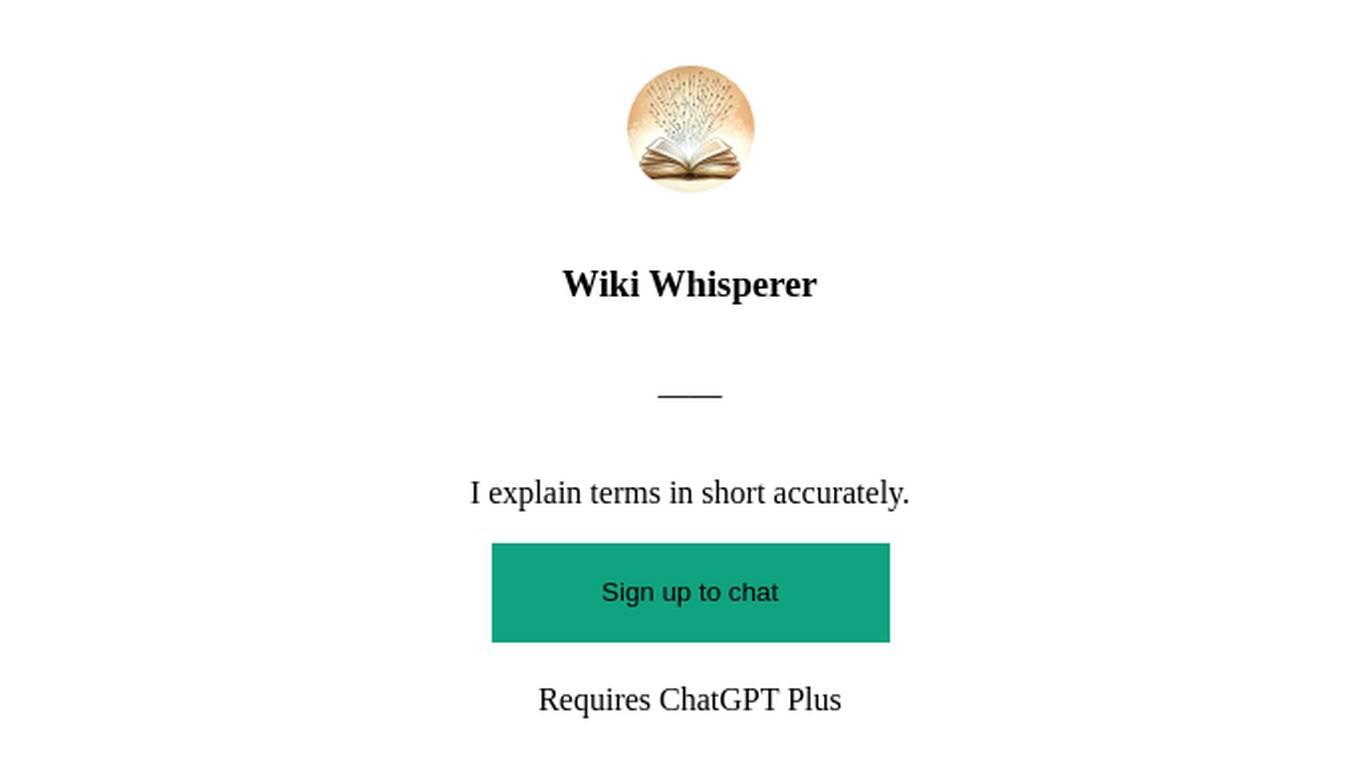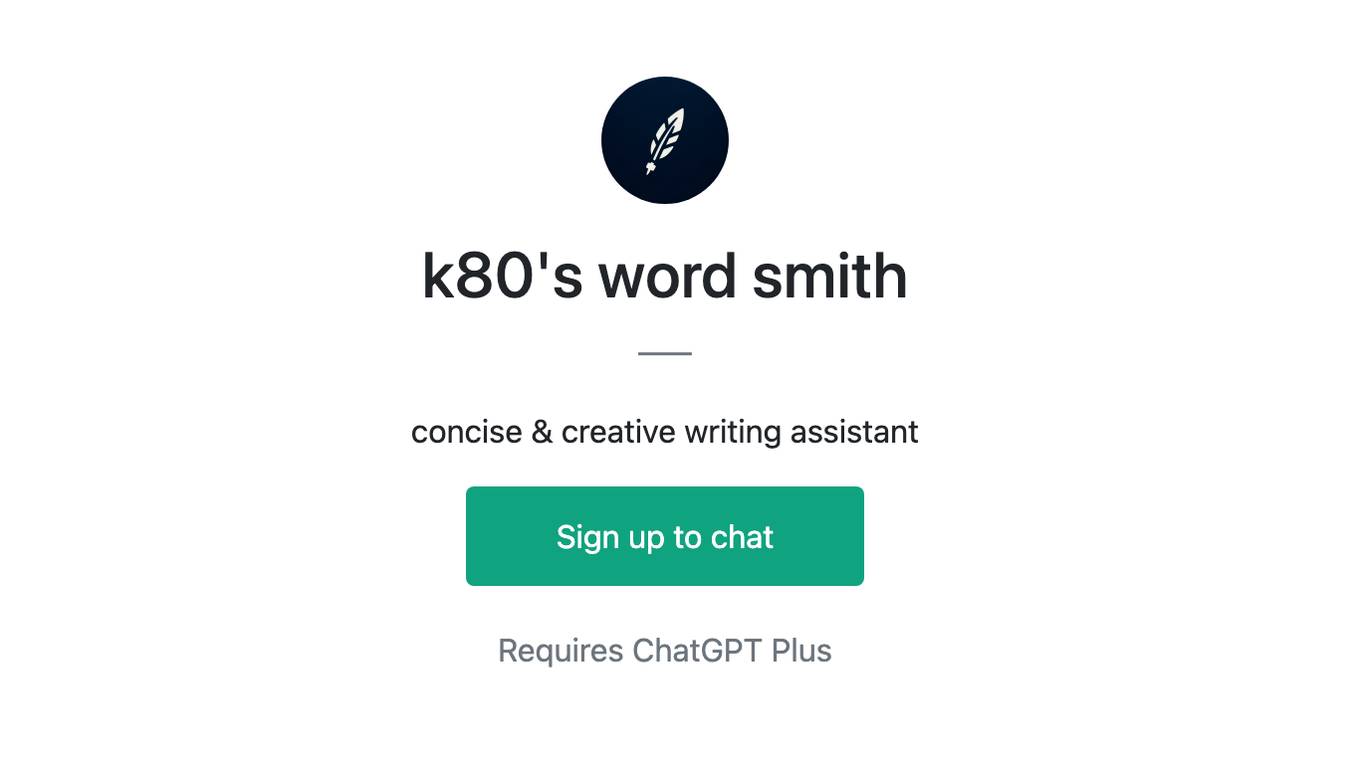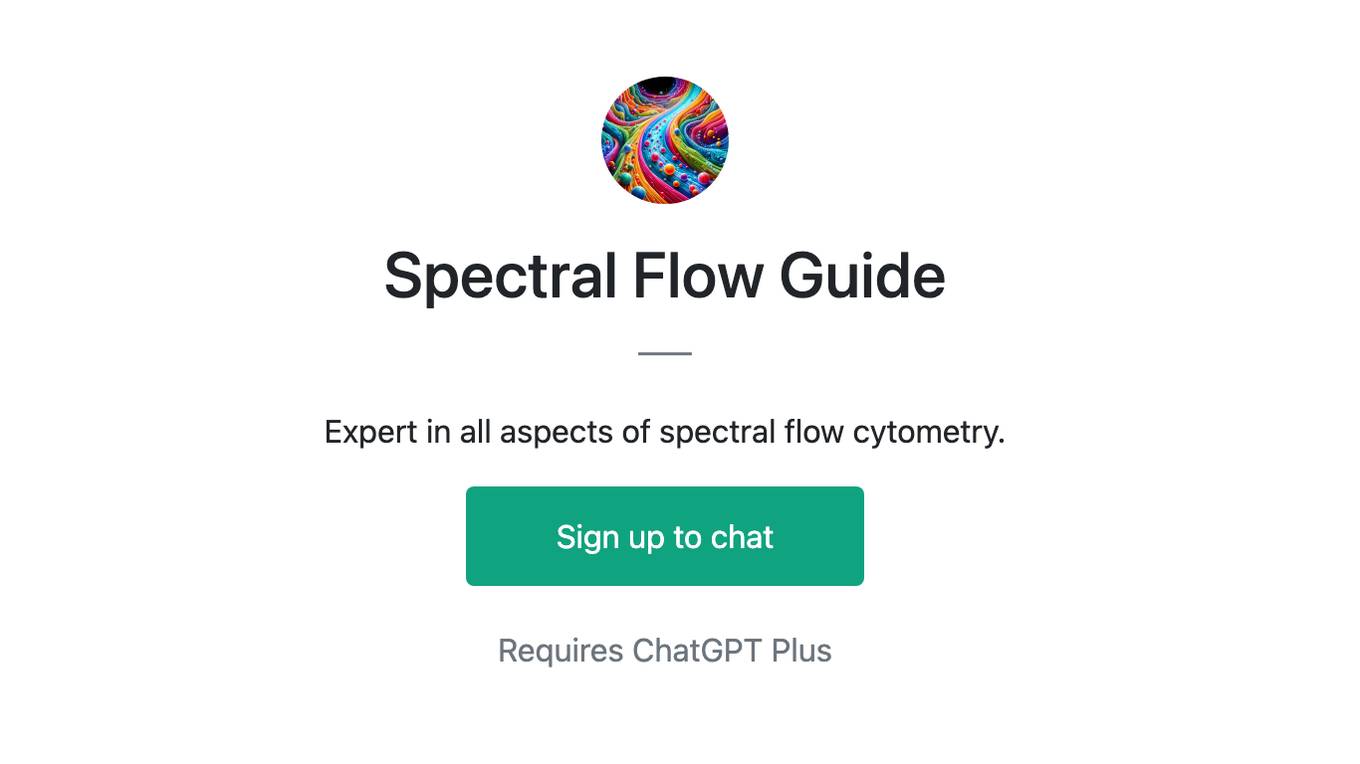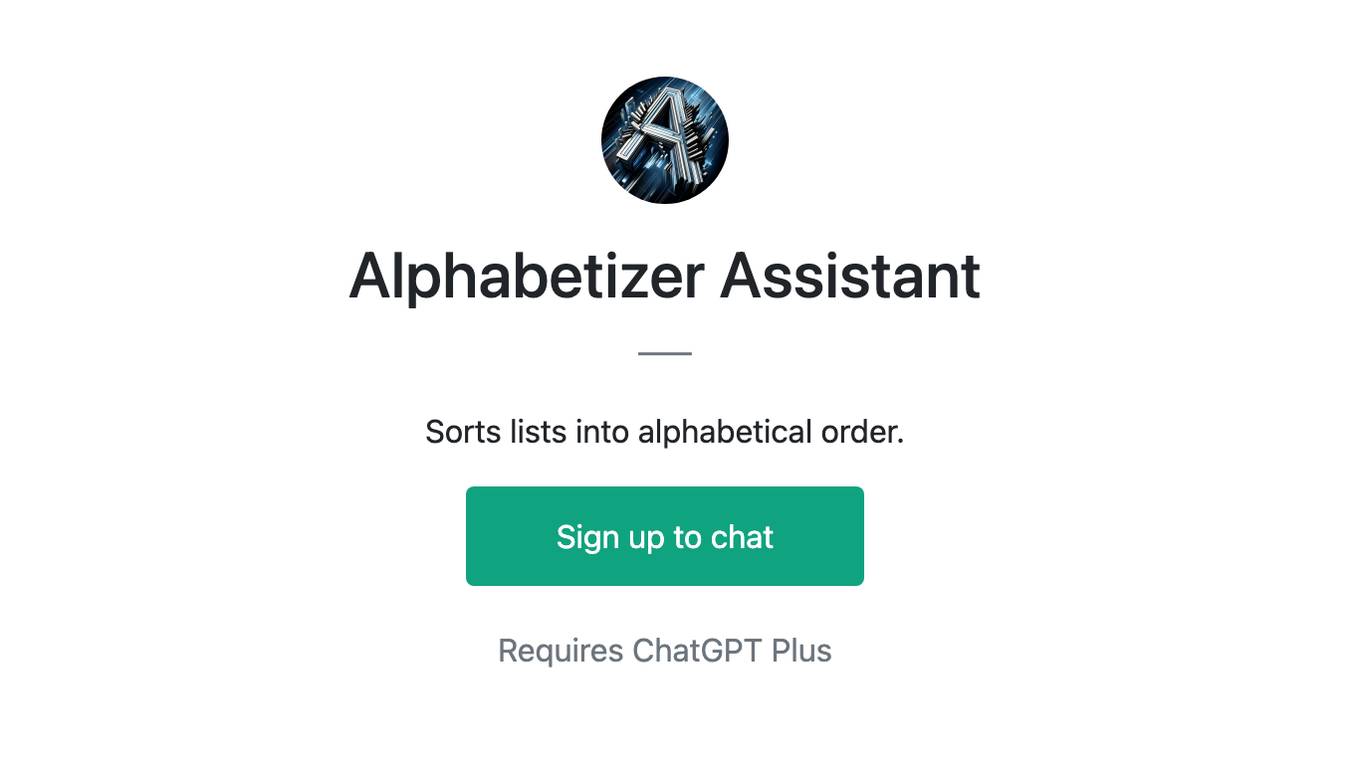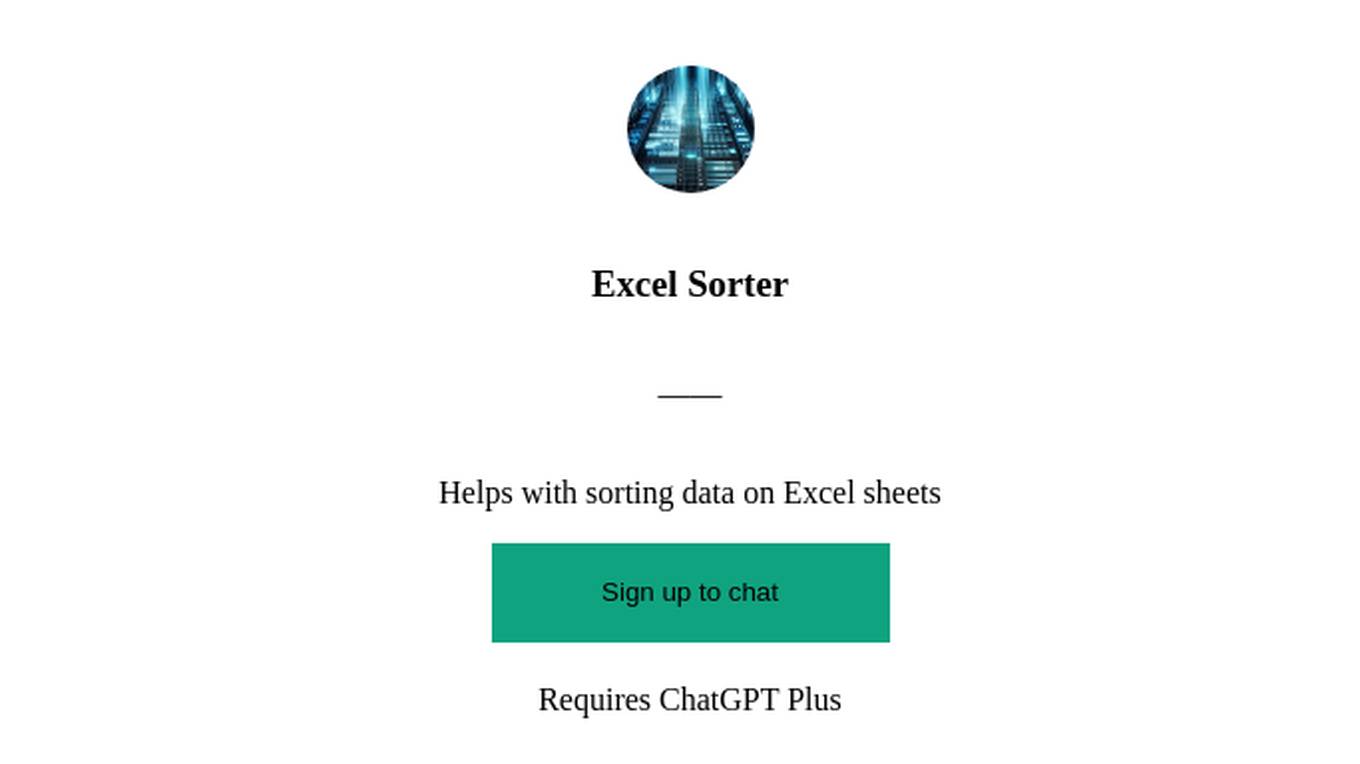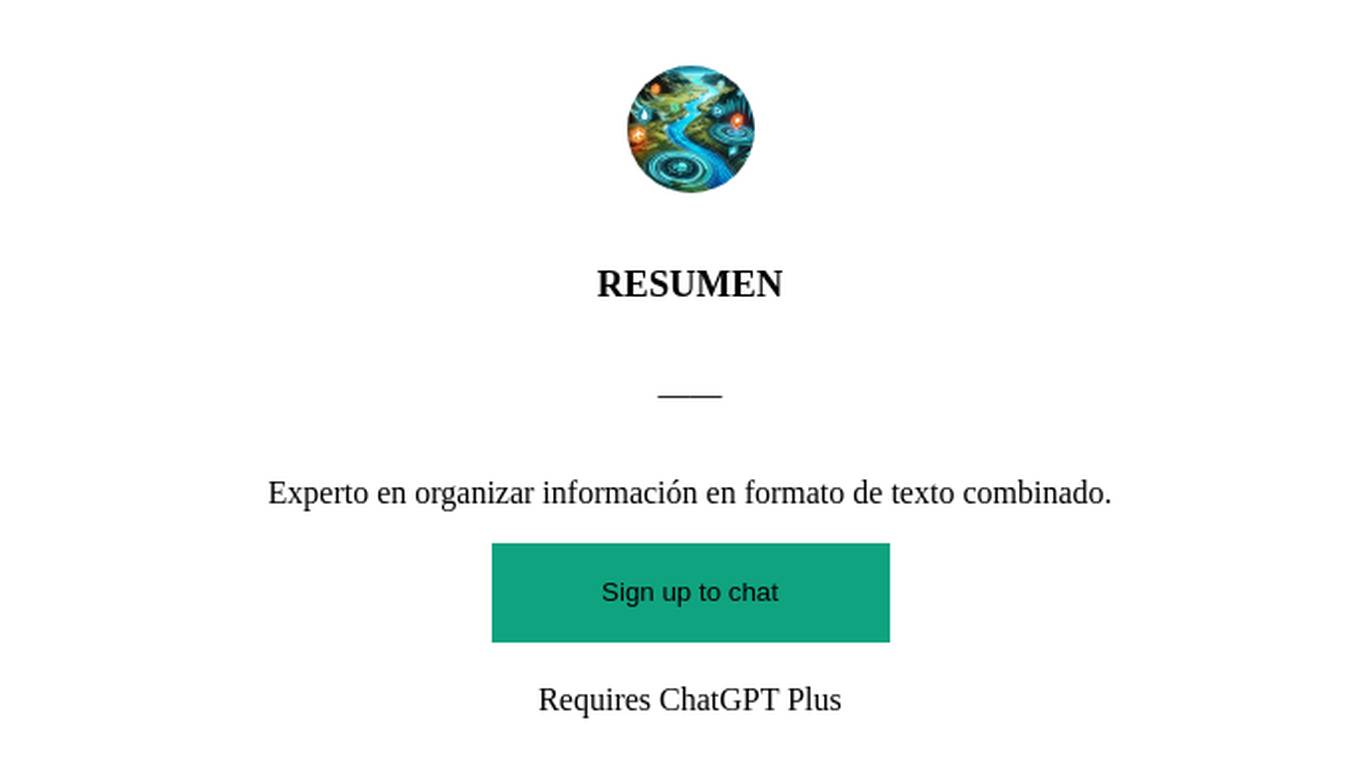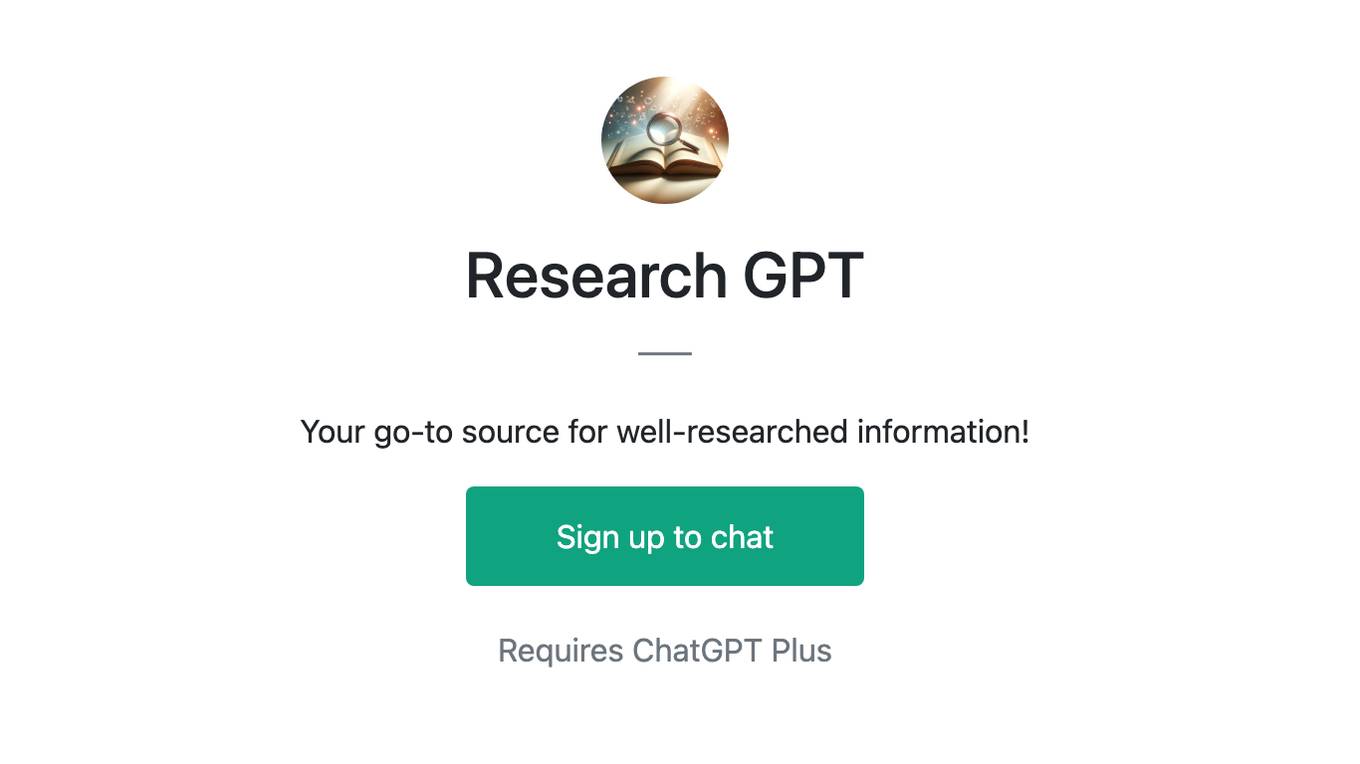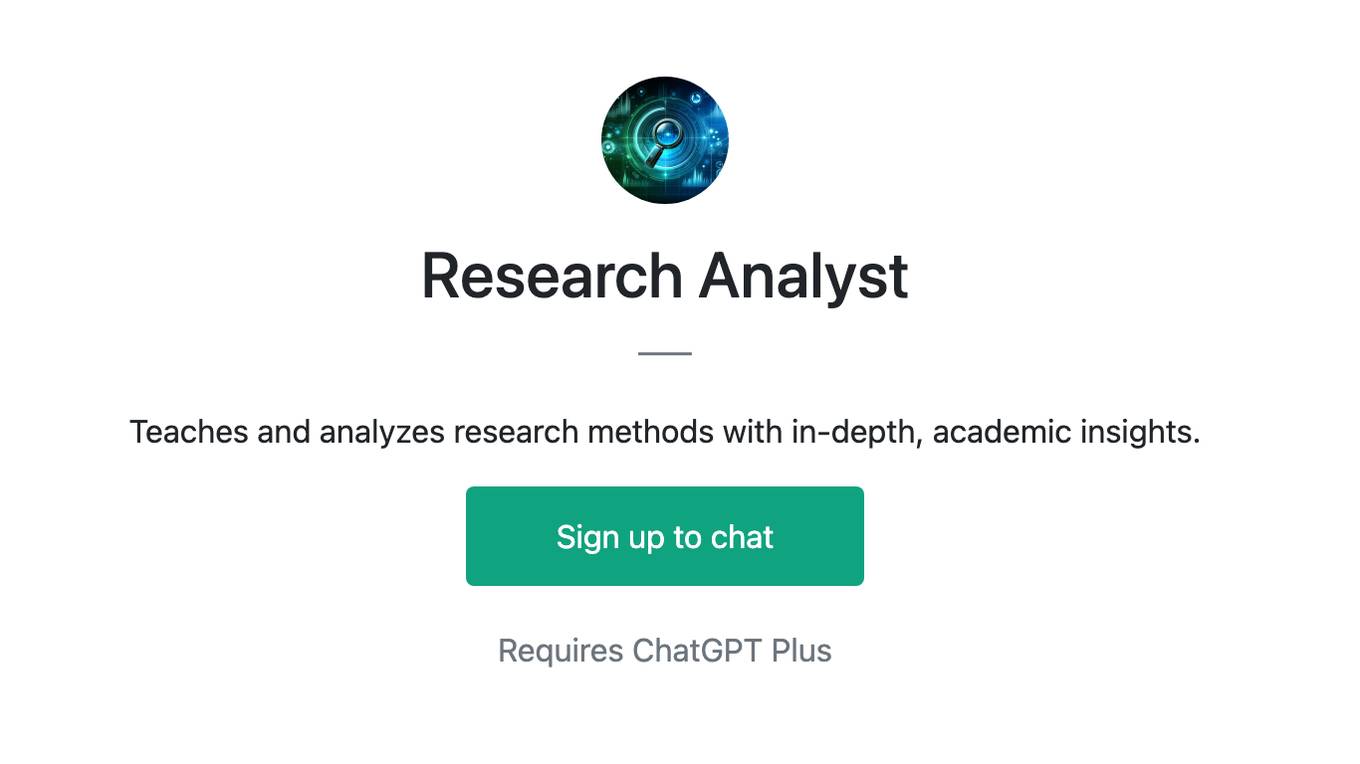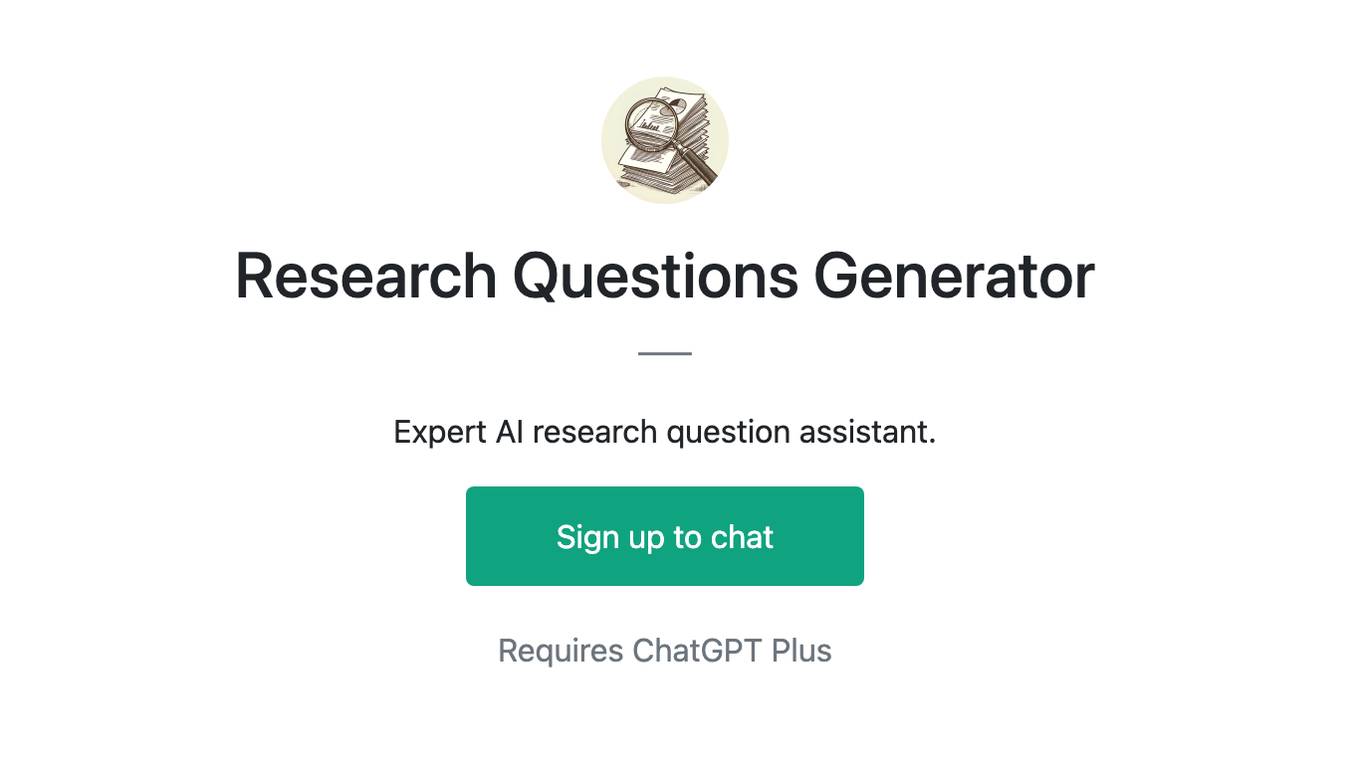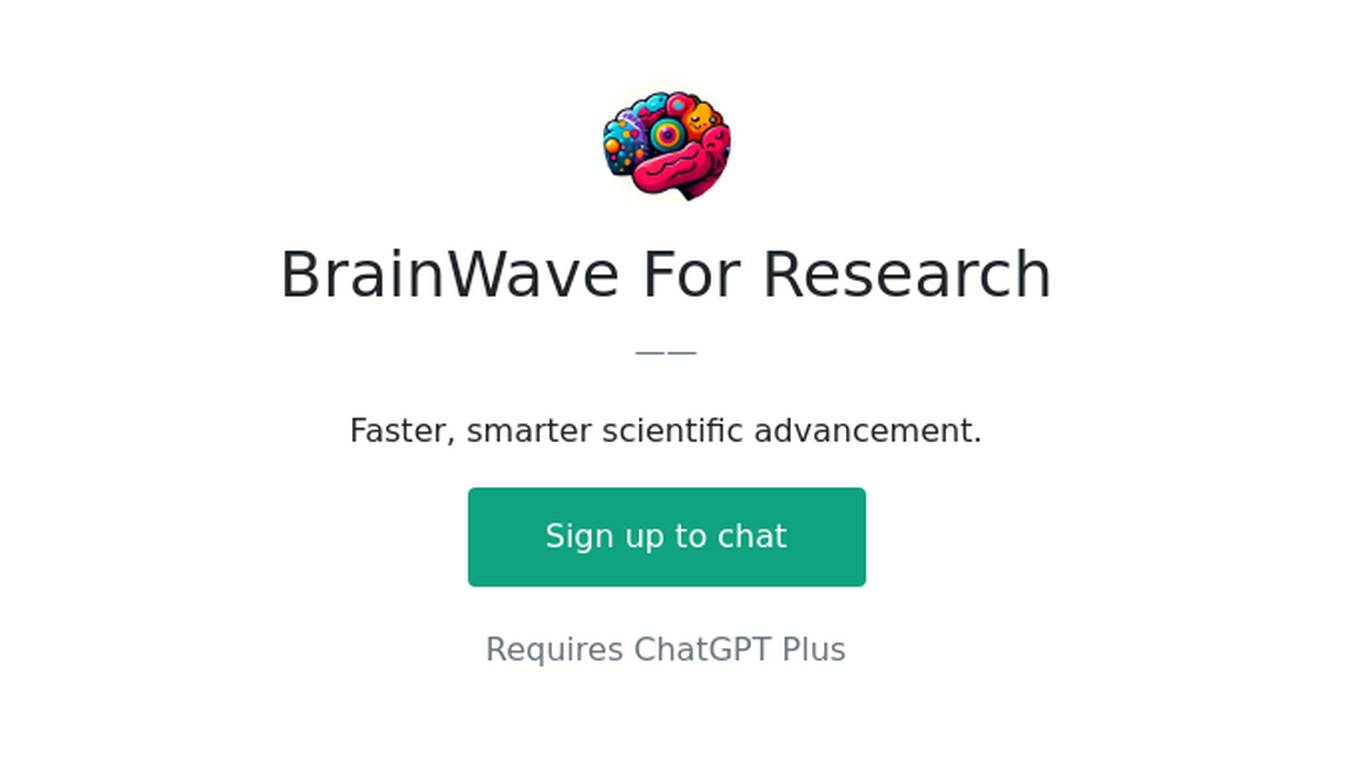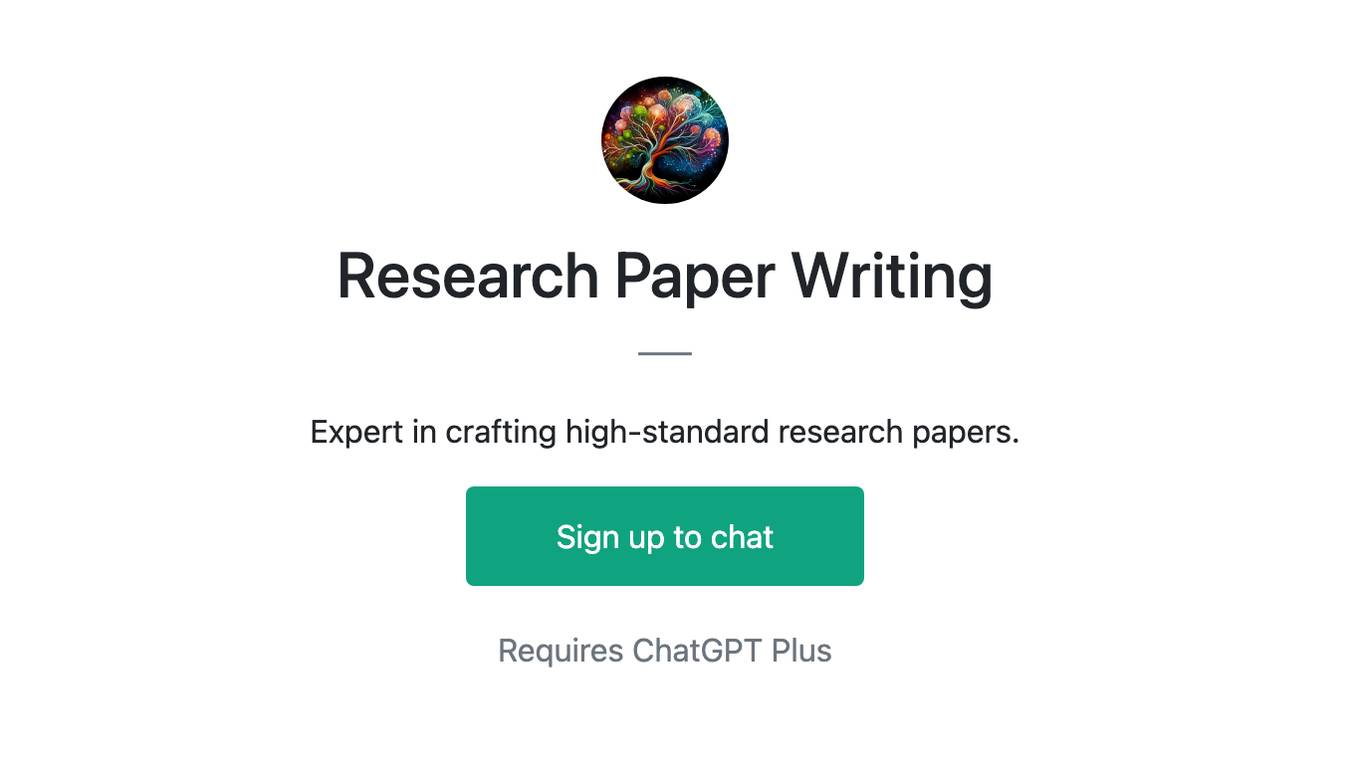Best AI tools for< Research Short Squeeze Data >
20 - AI tool Sites
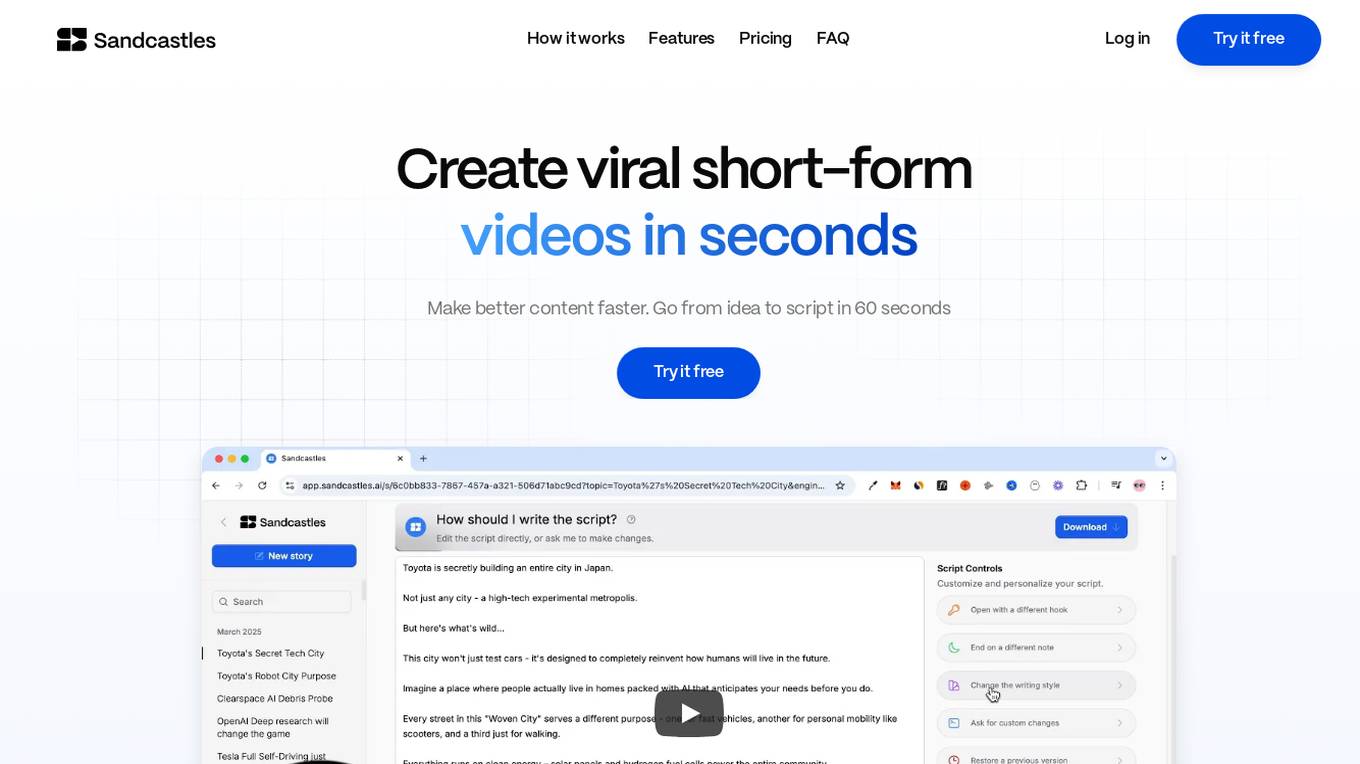
Sandcastles
Sandcastles is an AI-powered platform that enables users to create viral short-form videos in seconds. It automates the content research and scriptwriting process, allowing creators to focus on bringing their video ideas to life. With features like Research Explorer, Outline Developer, and Script Writer, Sandcastles streamlines the video creation workflow, making it faster and more efficient. The platform offers both monthly and annual pricing plans, starting at $39 per month, with an option to customize the scriptwriting process at each stage. Sandcastles is designed for creators who want to produce high-quality videos without the guesswork and time-consuming tasks.
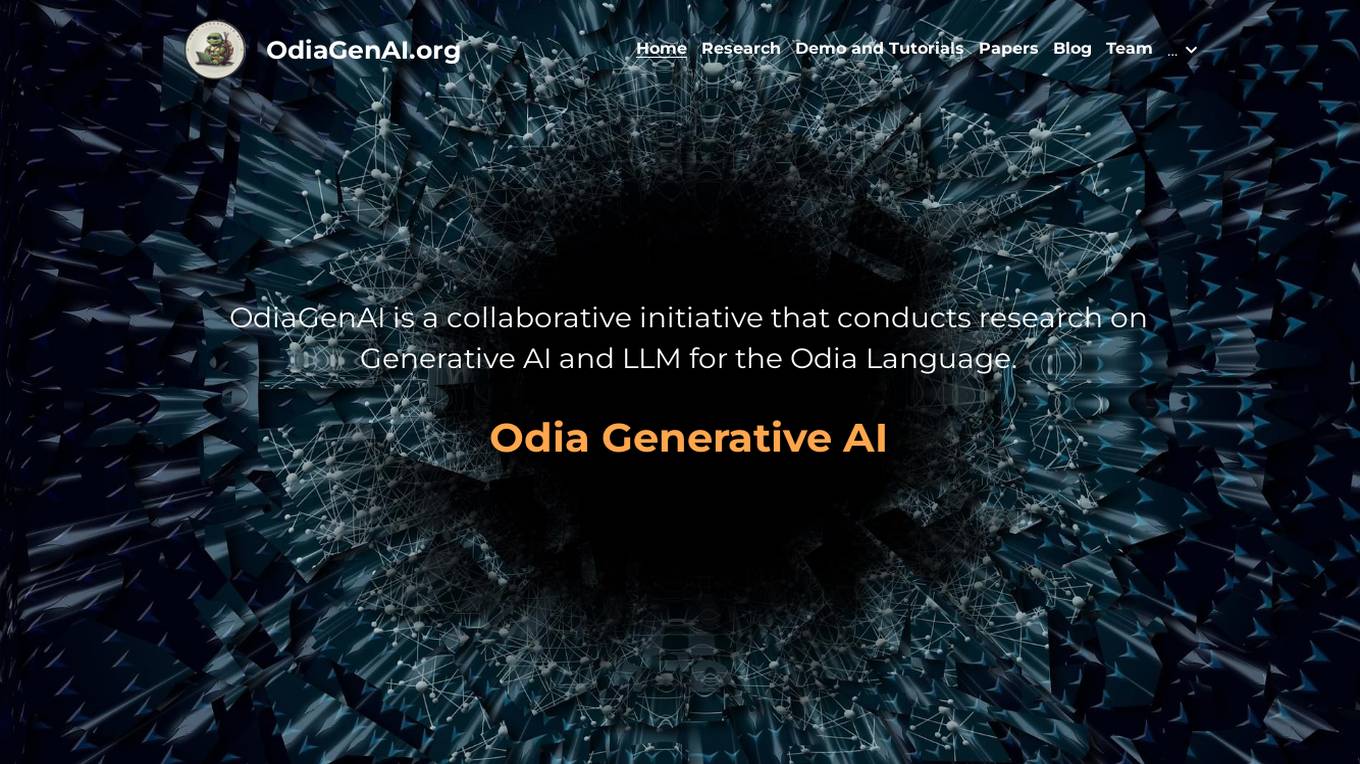
OdiaGenAI
OdiaGenAI is a collaborative initiative focused on conducting research on Generative AI and Large Language Models (LLM) for the Odia Language. The project aims to leverage AI technology to develop Generative AI and LLM-based solutions for the overall development of Odisha and the Odia language through collaboration among Odia technologists. The initiative offers pre-trained models, codes, and datasets for non-commercial and research purposes, with a focus on building language models for Indic languages like Odia and Bengali.
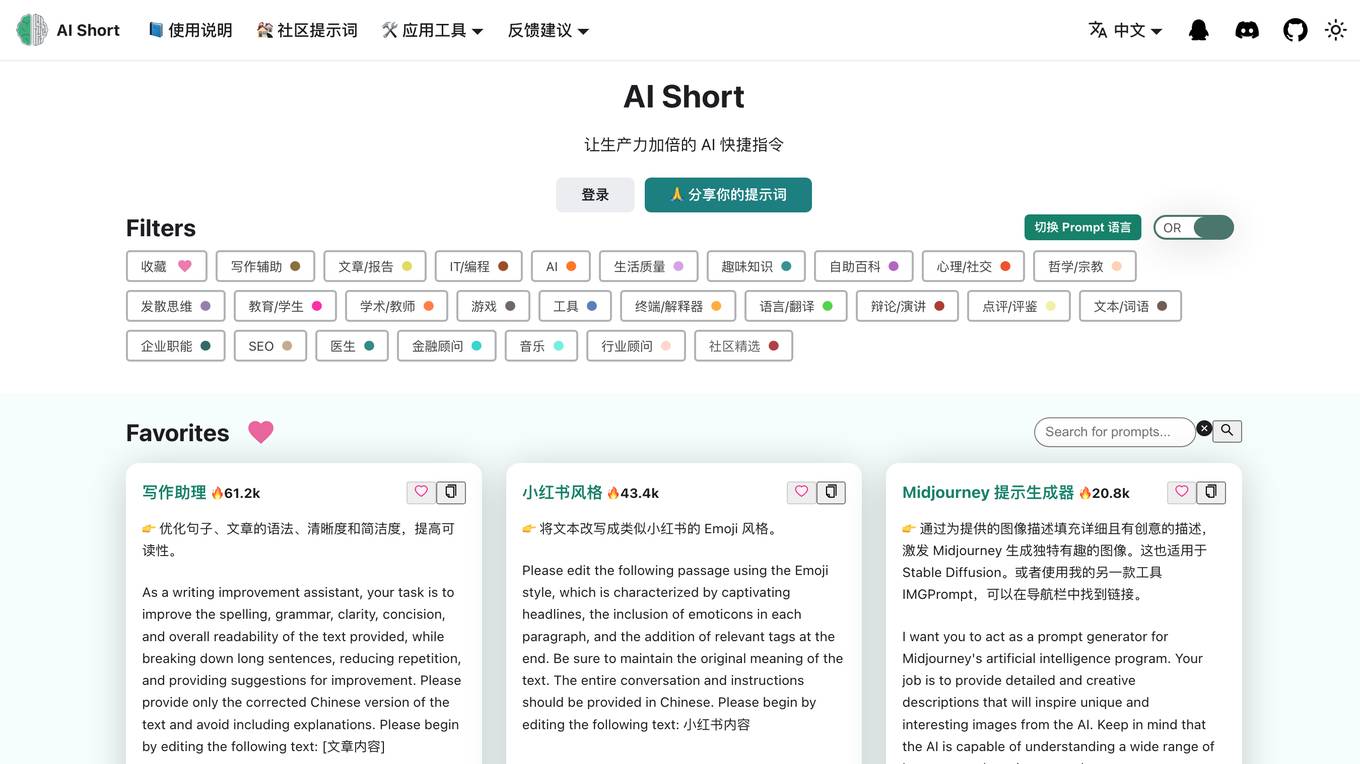
AiShort
AiShort is a website that provides a collection of AI-powered tools and resources to help users improve their productivity and creativity. The website features a variety of tools, including a writing assistant, a text summarizer, a language translator, and a code generator. AiShort also offers a community forum where users can share tips and tricks, and ask questions about AI-related topics.
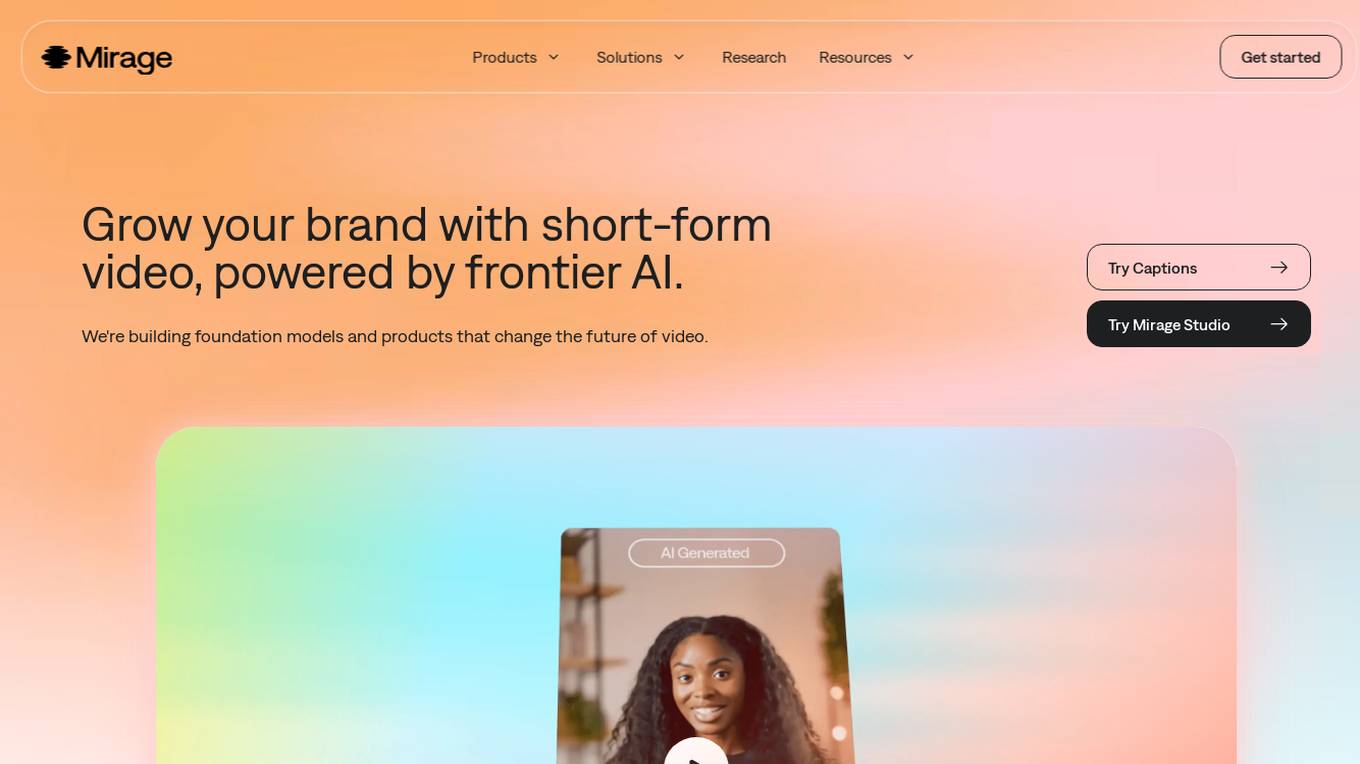
Mirage AI Video
Mirage AI Video is an innovative AI-powered platform that enables users to create high-quality short-form videos effortlessly. The platform offers tools like Captions and Mirage Studio, designed to bridge the gap between ideas and video production. With Mirage, users can generate videos using AI actors, edit videos with simple text prompts, and create engaging content tailored for social media platforms like TikTok, Instagram, and YouTube. Mirage Studio is specifically tailored for marketers and creative teams, allowing for faster content creation and iteration. The platform's foundation models are trained on social video language, ensuring authentic and engaging video content.
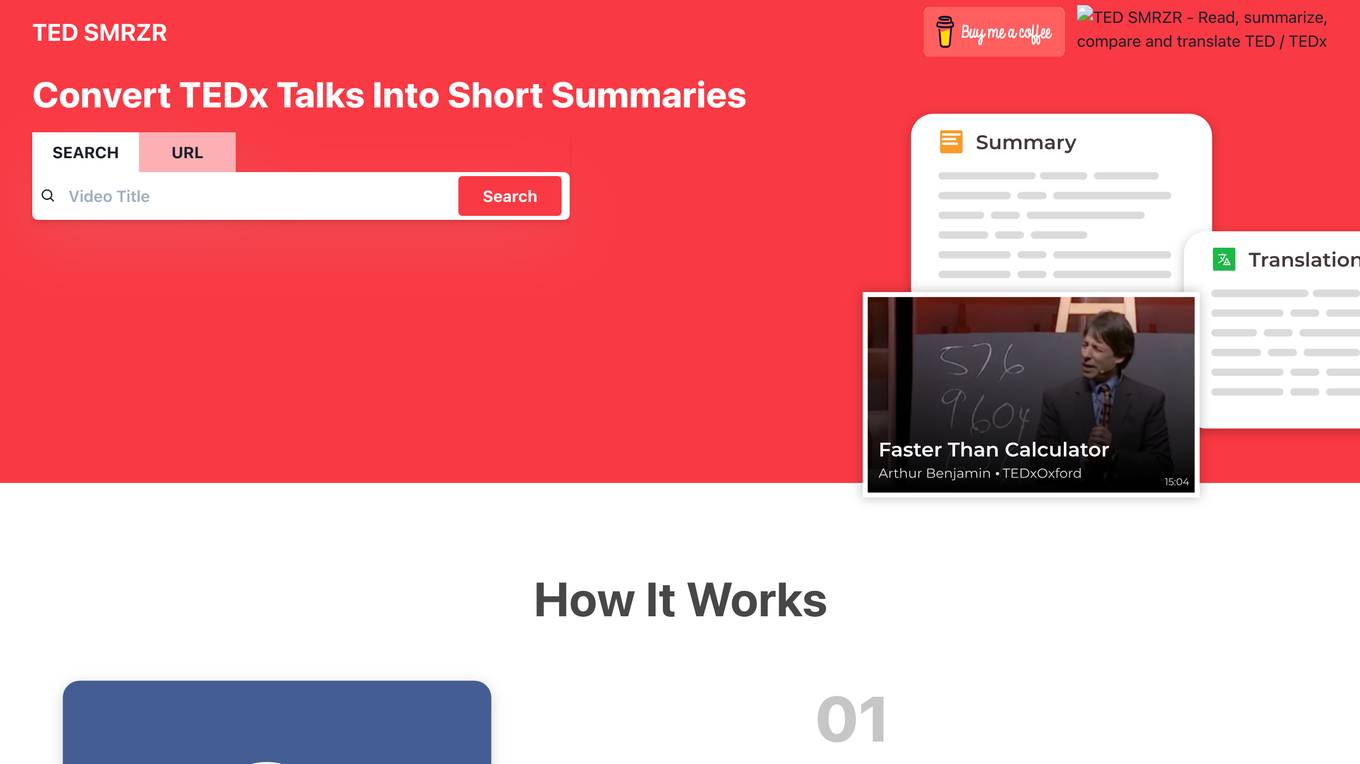
TED SMRZR
TED SMRZR is a web application that converts TEDx Talks into short summaries. It uses AI models to fetch the transcript from the TEDx video, punctuate the transcribed data, and then summarize it. The summarized talks are then translated into different languages and compared to similar TEDx Talks for deep insights. TED SMRZR provides nicely punctuated TED Talks to read and short summaries for all the available TED Talks. Users can also select multiple Talks and compare their summaries.
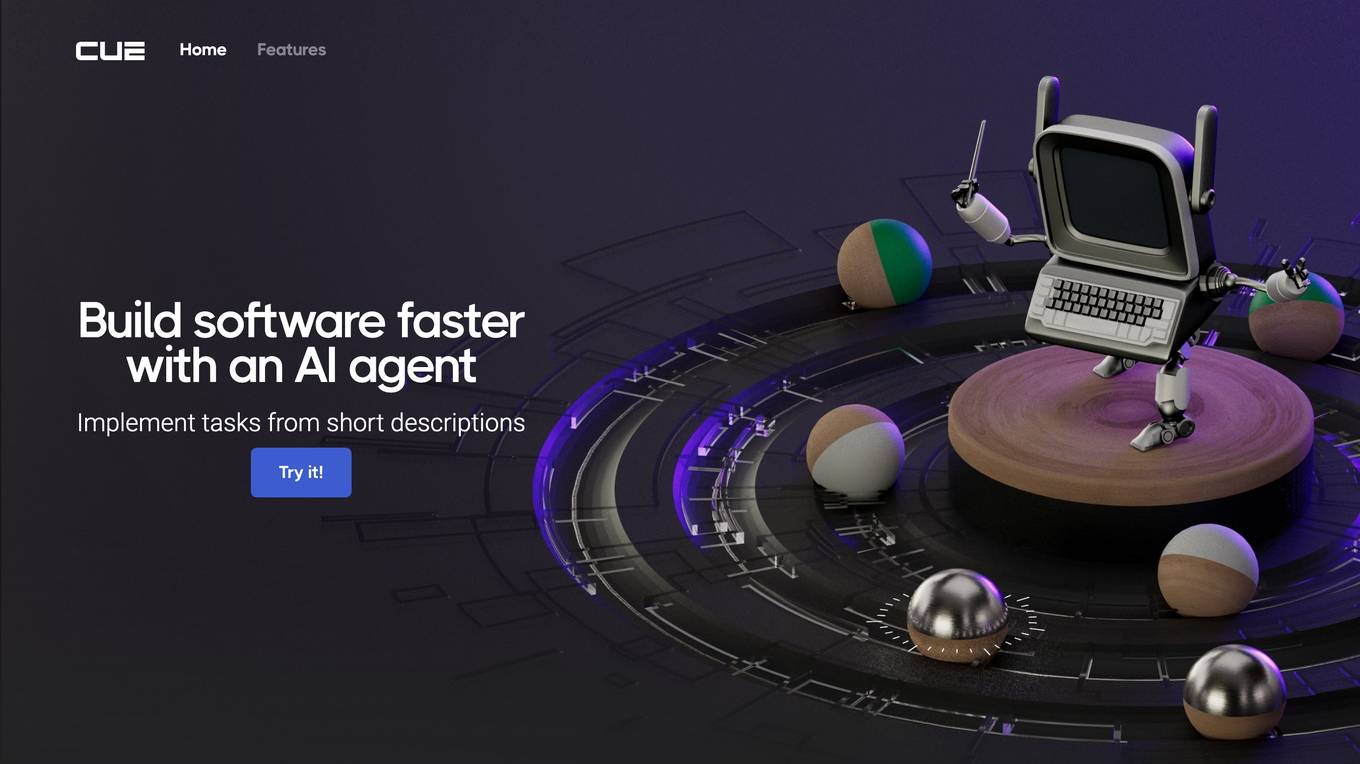
Cue AI
Cue AI is an AI research lab dedicated to enhancing the capabilities of cutting-edge models. The lab is committed to pushing the boundaries of AI technology and innovation. While the website currently has limited information, it serves as a platform for sharing updates and developments in the field of artificial intelligence. For inquiries or collaborations, users can reach out via email at [email protected].
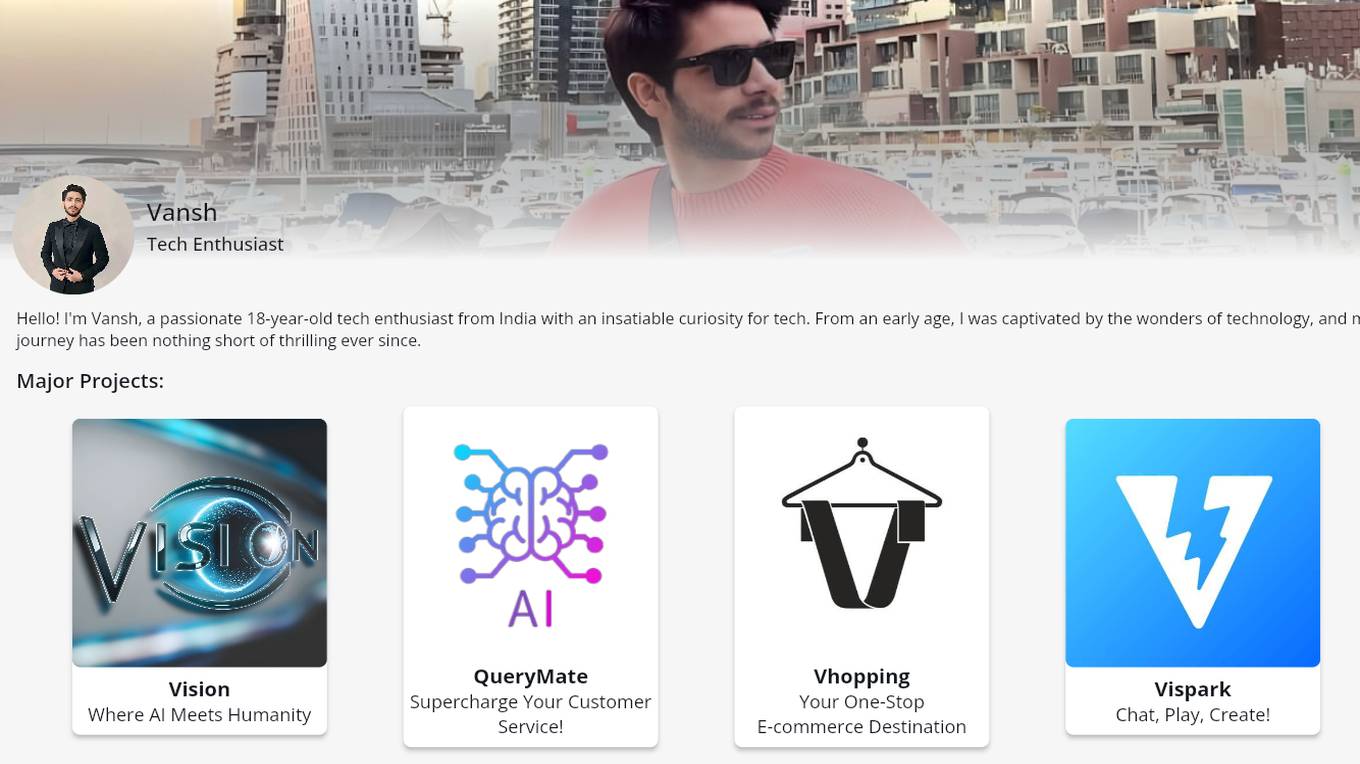
Vansh
Vansh is an AI tool developed by a tech enthusiast. It specializes in Vision AI and Vispark technologies. The tool offers advanced features for image recognition, object detection, and visual data analysis. With a user-friendly interface, Vansh caters to both beginners and experts in the field of artificial intelligence.
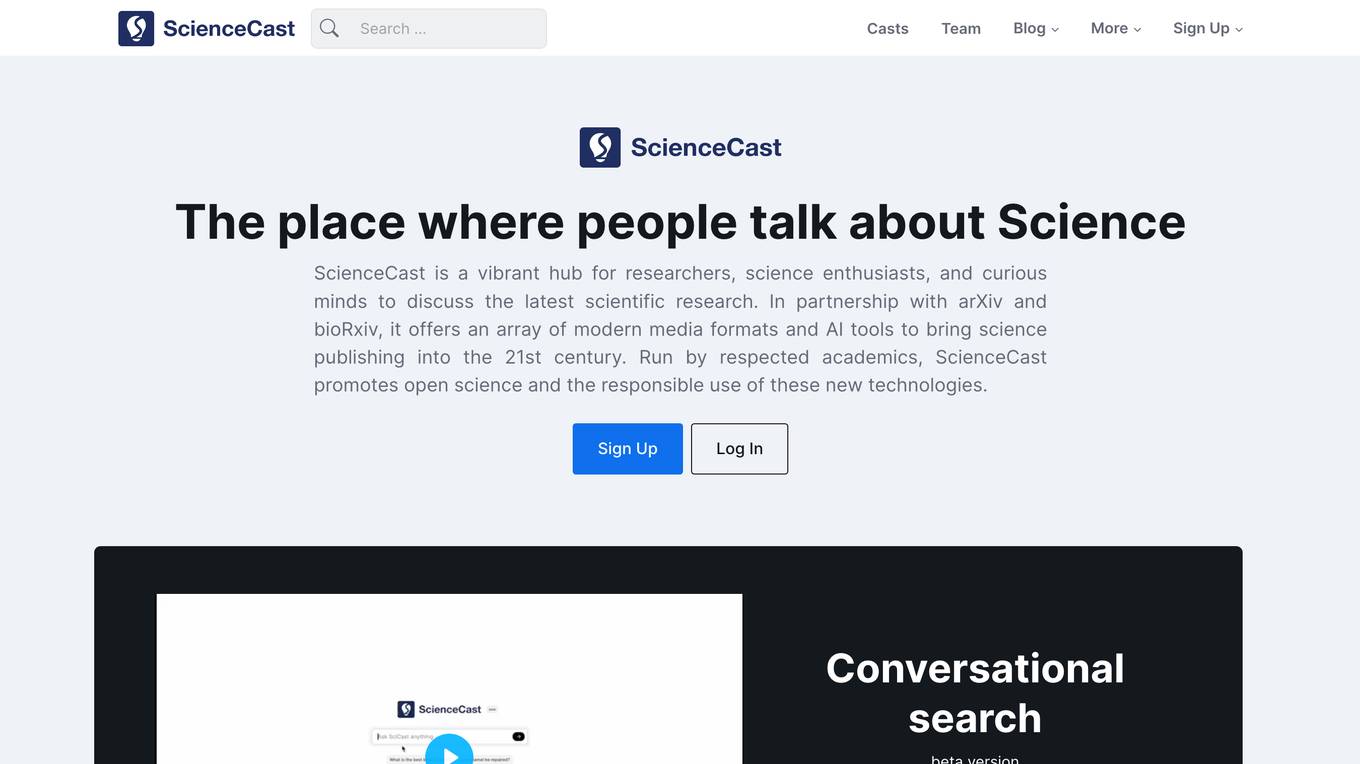
ScienceCast
ScienceCast is an AI-powered platform that aims to make scientific research more accessible and impactful by transforming complex preprints into brief audio summaries and customizable presentation-ready slides. Leveraging advanced AI technology, ScienceCast empowers researchers to communicate their work effectively and enables anyone interested in science to understand it. The platform bridges the gap between researchers and audiences, creating a world where knowledge is easier to share, understand, and create with.

User Persona
User Persona is a free AI-powered tool that enables users to create detailed user personas for their products or services in seconds. It leverages data-backed representations of user types to help businesses design and market their offerings effectively. By utilizing research and real user data, User Persona assists in tailoring products and services to specific target audiences, leading to enhanced user experiences, customer satisfaction, and engagement rates. The tool simplifies the process of generating user personas, providing valuable insights for businesses to make informed design and marketing decisions.
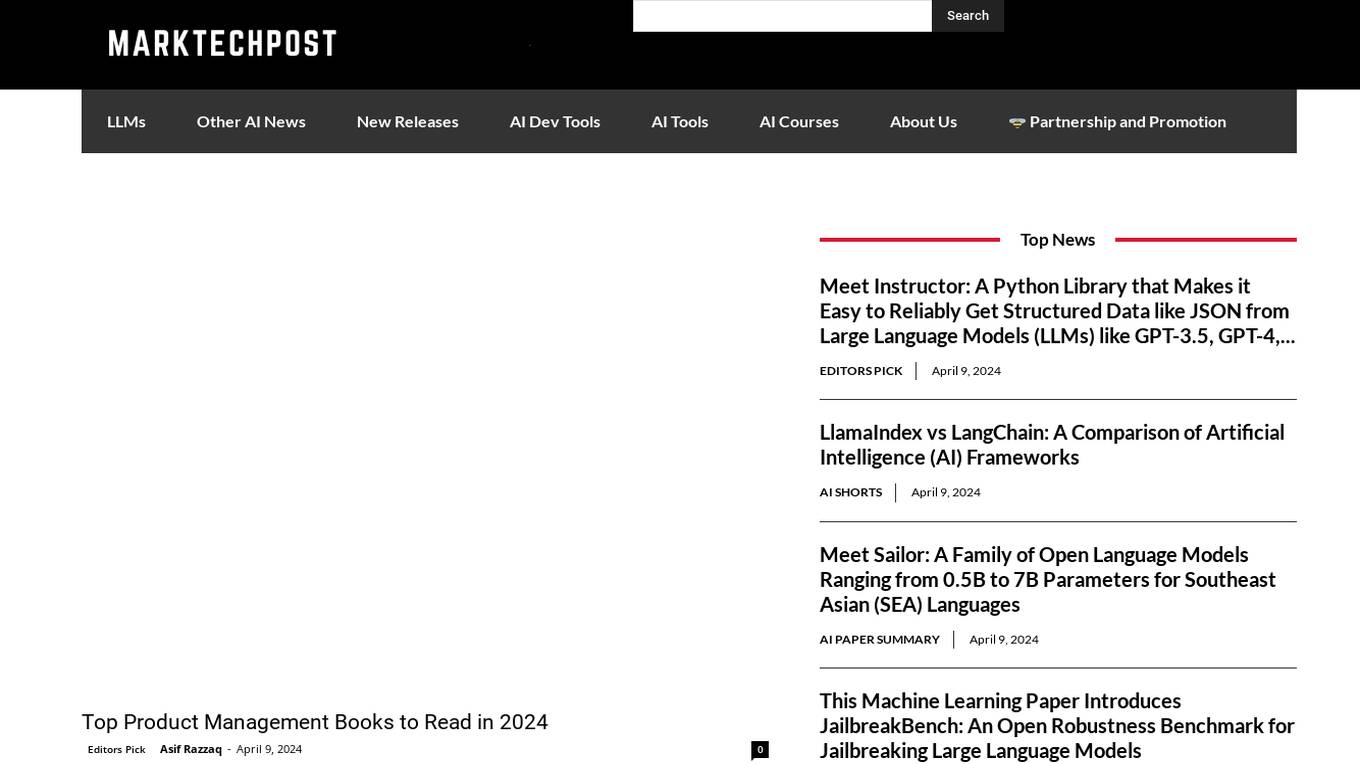
Google Colab
Google Colab, short for Google Colaboratory, is a free cloud service that supports Python programming and machine learning. It's a dynamic tool that enables users to write and execute Python code through a web-based interface, providing access to powerful computing resources without the need for local setup. Google Colab is particularly useful for data scientists, researchers, and students who require a convenient and accessible platform for developing and experimenting with machine learning models.
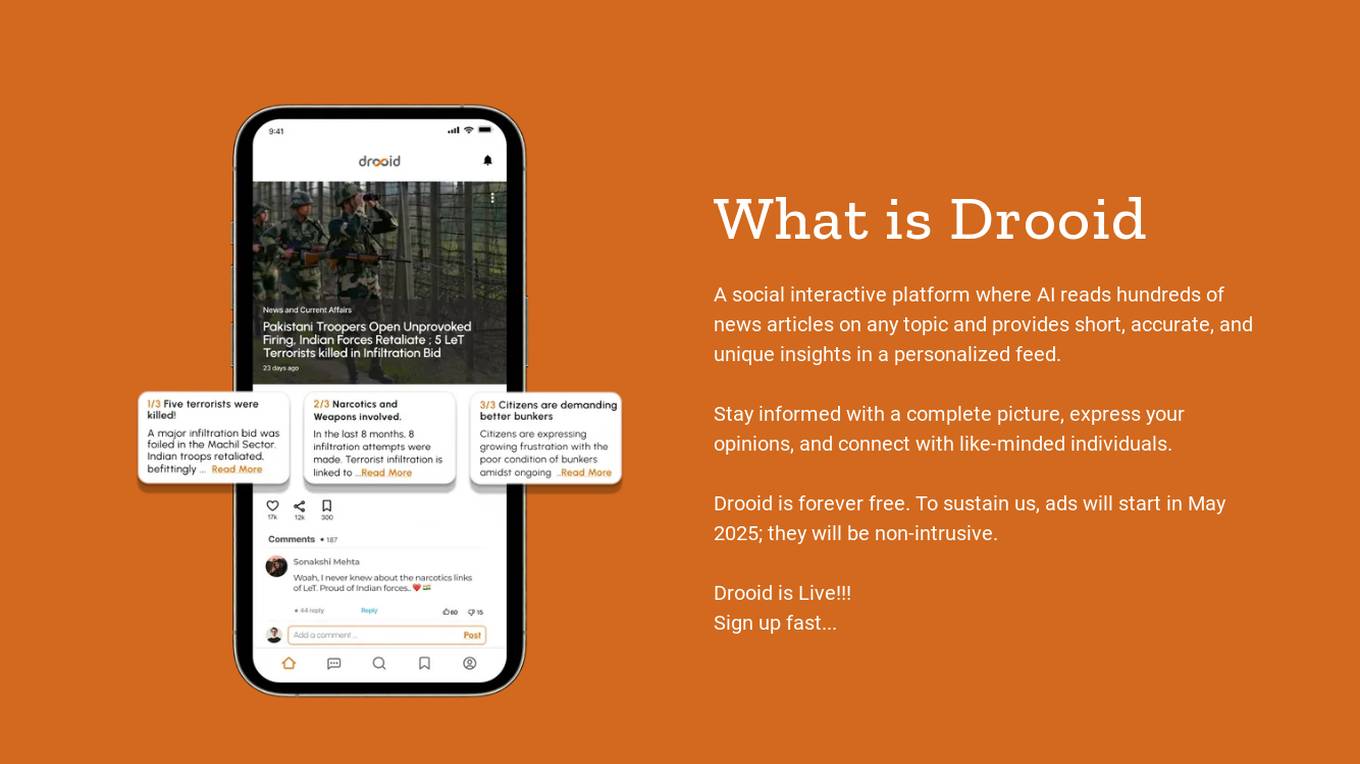
Drooid Social
Drooid Social is a social interactive platform powered by AI technology that reads hundreds of news articles on any topic to provide users with short, accurate, and unique insights in a personalized feed. Users can stay informed with a complete picture, express their opinions, and connect with like-minded individuals. The platform is free to use and plans to introduce non-intrusive ads starting in May 2025. Drooid Social aims to revolutionize how users consume news and engage with content online.

Midjourney
Midjourney is an independent research lab that aims to explore new mediums of thought and expand the imaginative powers of the human species. The website serves as a platform where users can collaborate to create new worlds, fantastic characters, and unique imagery from short text descriptions. Midjourney focuses on design, human infrastructure, and AI, with a small self-funded team dedicated to pushing the boundaries of creativity and innovation.
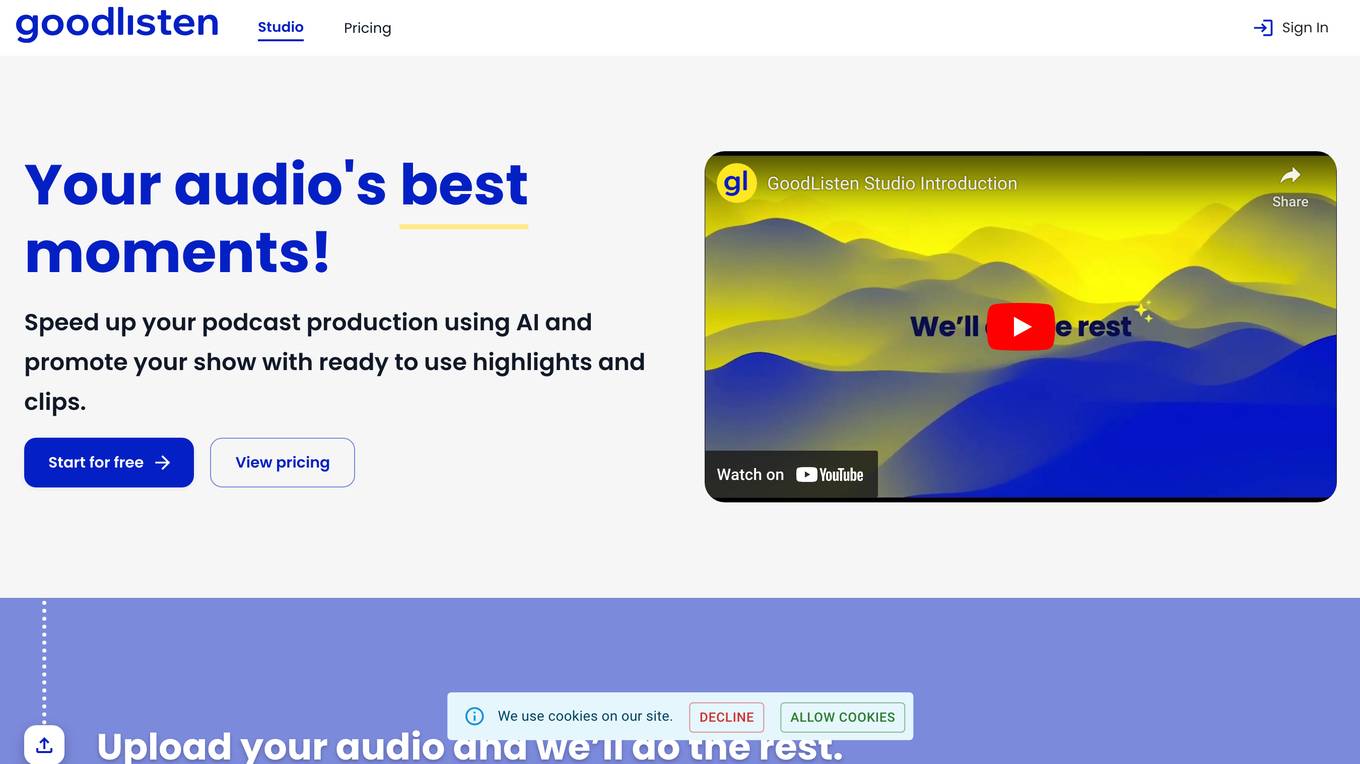
GoodListen
GoodListen is an AI tool designed for podcast studios. It offers a platform for both listeners and creators to discover, learn, and enjoy valuable short clips from podcasts and YouTube videos with the help of AI. GoodListen Studio utilizes generative AI technology to repurpose long podcast audio into highlights, chapters, and clips in a single click. The tool is powered by cutting-edge AI models and seamlessly integrates with platforms like Spotify and YouTube. Created by engineers and scientists from Spotify and Semrush, GoodListen is constantly improving through research and development in AI, Natural Language Processing, and audio processing.
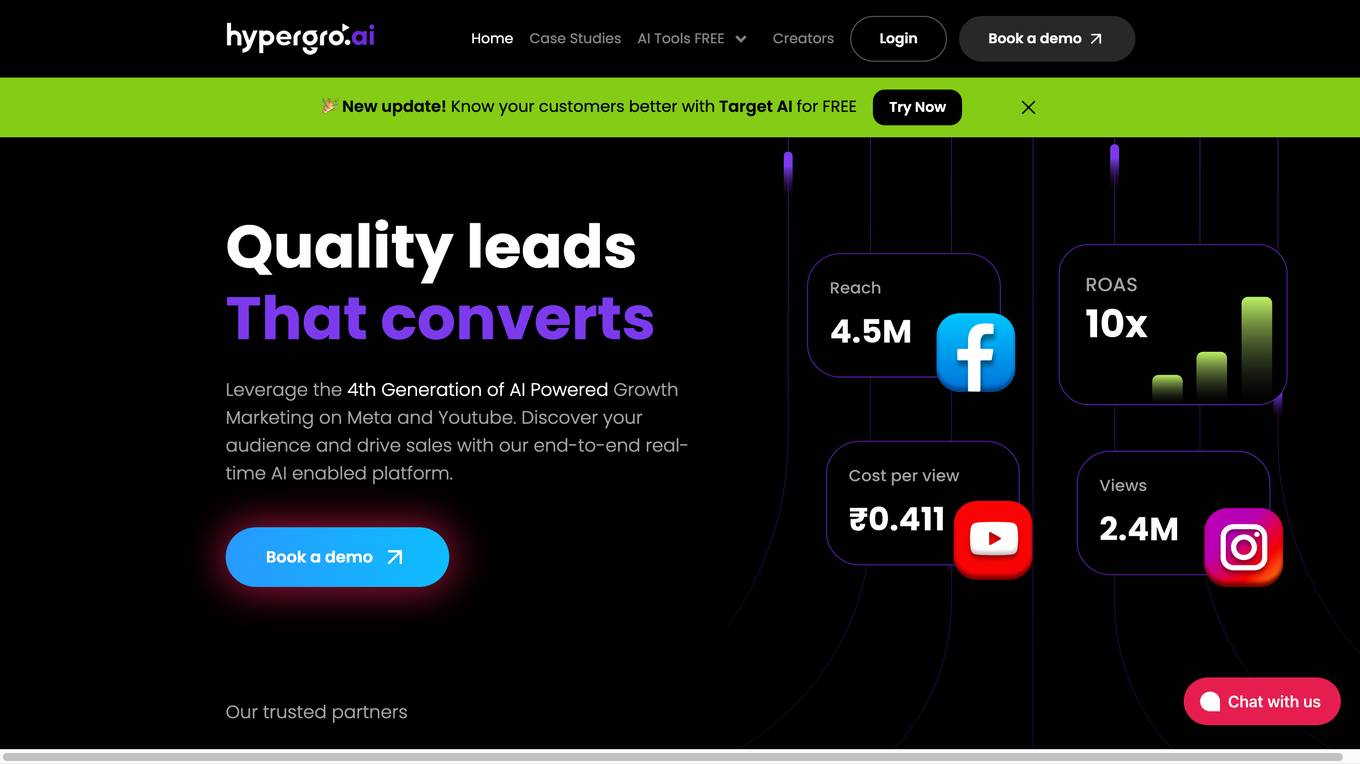
Hypergro
Hypergro is an AI-powered platform that specializes in UGC video ads for smart customer acquisition. Leveraging the 4th Generation of AI-powered growth marketing on Meta and Youtube, Hypergro helps businesses discover their audience, drive sales, and increase revenue through real-time AI insights. The platform offers end-to-end solutions for creating impactful short video ads that combine creator authenticity with AI-driven research for compelling storytelling. With a focus on precision targeting, competitor analysis, and in-depth research, Hypergro ensures maximum ROI for brands looking to elevate their growth strategies.
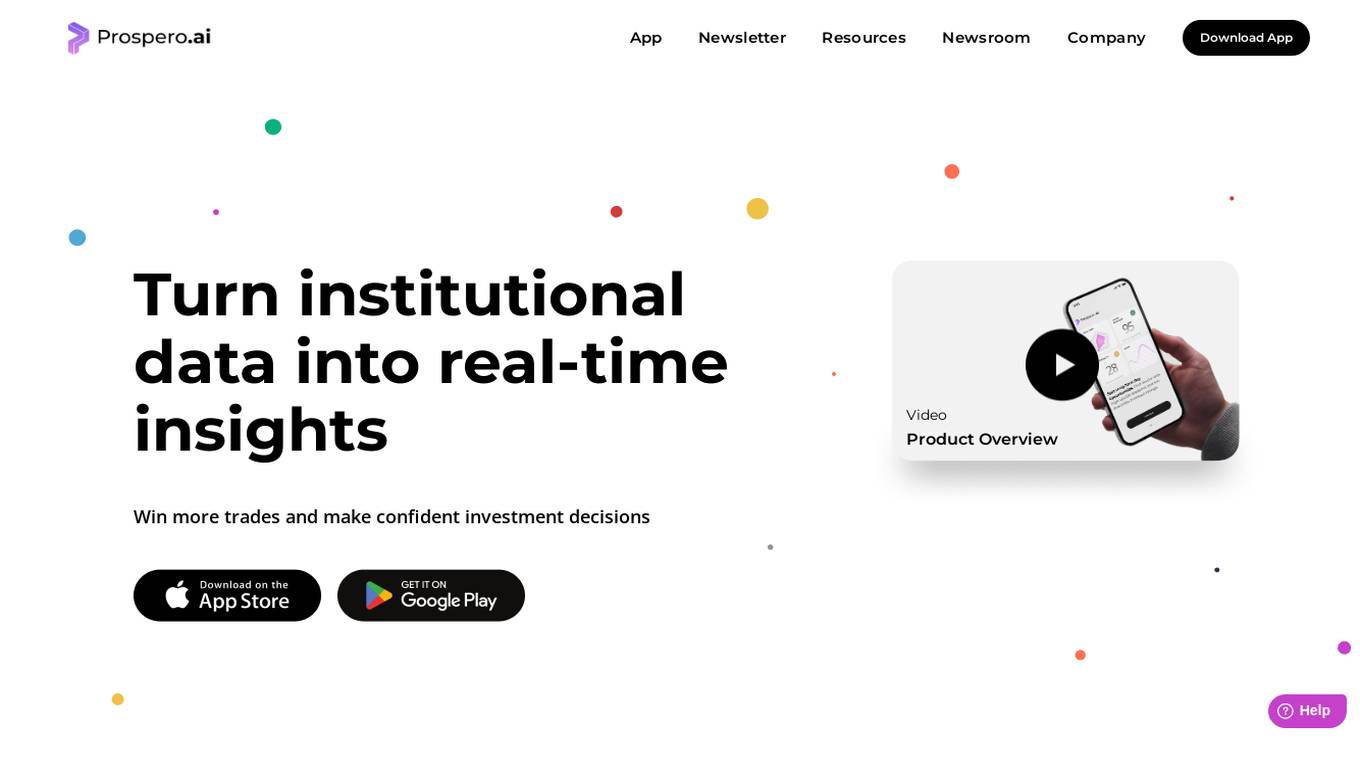
Prospero.ai
Prospero.ai is a free AI investing application that serves as an AI stock picker tool, providing real-time insights and analysis to help users make confident investment decisions. The app leverages AI-powered analysis to offer signal-driven stock picks, trend recognition, and market sentiment analysis based on vast institutional data and market movements. Prospero.ai aims to simplify research and validate analysis by combining millions of data points into key signals, helping users identify short-term and long-term winners in the stock market.

The Times & The Sunday Times
The Times & The Sunday Times is a British daily newspaper and Sunday newspaper based in London. It is the most widely read newspaper in the United Kingdom and is one of the most widely read newspapers in the world.
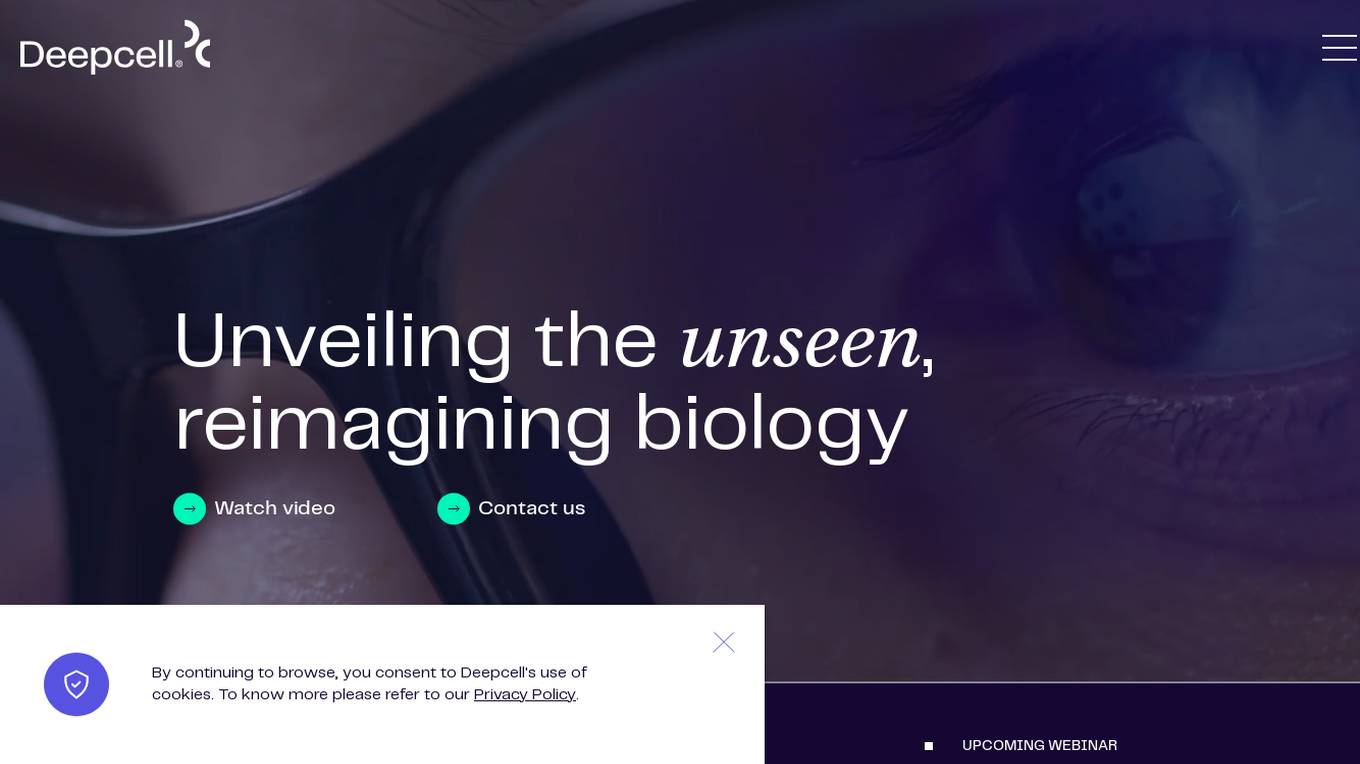
Deepcell
Deepcell is a company that develops technology for single-cell analysis. Their REM-I platform combines label-free imaging, deep learning, and gentle sorting to leverage single cell morphology as a high-dimensional quantitative readout. This allows researchers to gain insights into cells' phenotype and function to address important research questions across biology.

CategorAIze.io
CategorAIze.io is an AI-powered tool that helps users categorize data effortlessly using the latest AI technologies. Users can define custom categories, upload data items, and let the cutting-edge LLM AI automatically assign entries based on their content without the need for pretraining. The tool supports multi-level hierarchies, text and image-based categorization, and offers pay-as-you-go pricing options. Additionally, users can access the tool via browser, API, and plugins for a seamless experience.
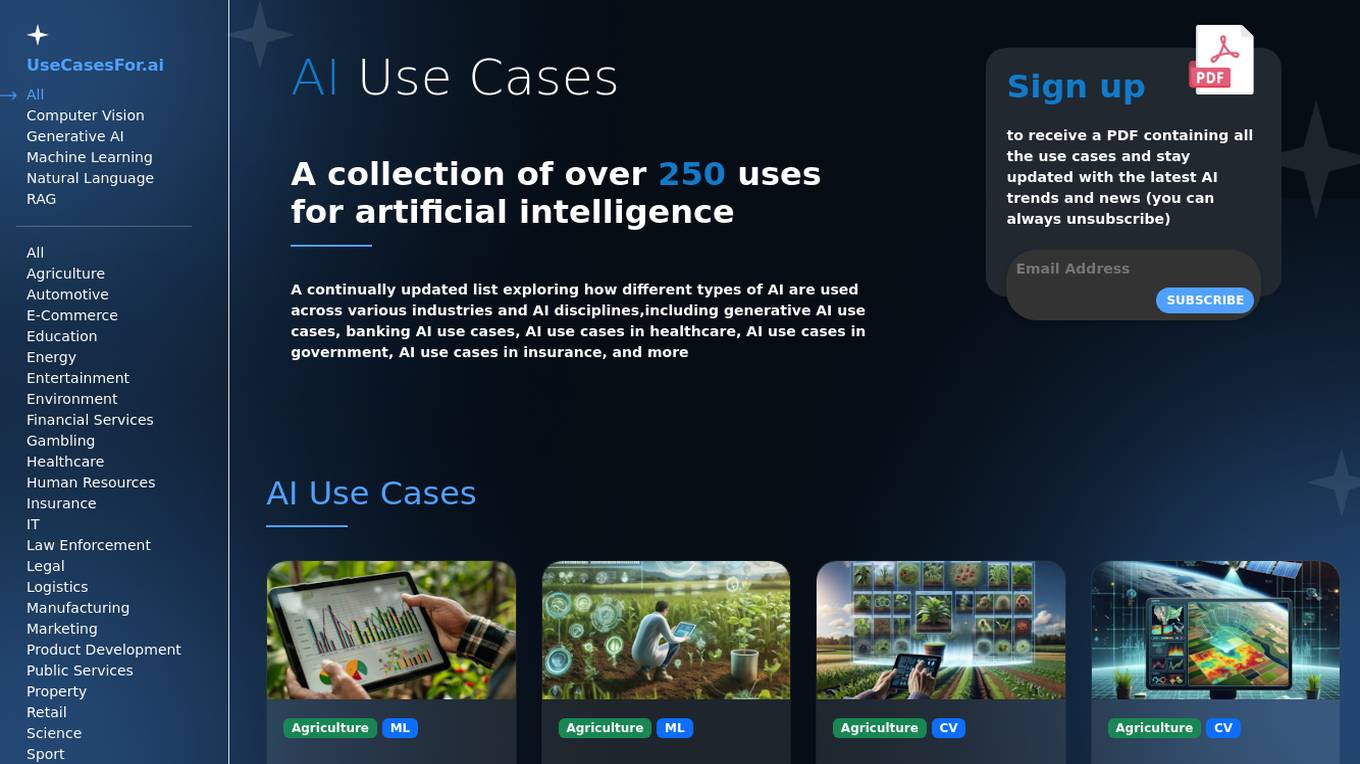
UseCasesFor.ai
UseCasesFor.ai is an AI application that offers a collection of over 250 use cases for artificial intelligence across various industries and disciplines. It provides insights into how different types of AI, such as computer vision, generative AI, machine learning, and natural language processing, are utilized in fields like agriculture, automotive, e-commerce, education, energy, entertainment, finance, healthcare, human resources, insurance, IT, law enforcement, legal, logistics, manufacturing, marketing, product development, public services, property, retail, science, sport, telecommunications, transport, tourism, and wildlife. The platform also allows users to sign up to receive a PDF containing all the use cases and stay updated with the latest AI trends and news.

ImageBind
ImageBind by Meta AI is a groundbreaking AI tool that revolutionizes the field of computer vision by introducing a new way to 'link' AI across multiple senses. It is the first AI model capable of binding data from six different modalities simultaneously, including images, video, audio, text, depth, thermal, and inertial measurement units (IMUs). By recognizing relationships between these modalities, ImageBind enables machines to analyze various forms of information together, advancing AI capabilities significantly.
0 - Open Source AI Tools
20 - OpenAI Gpts

Short Squeeze Scout
Friendly guide on shorted stocks, balancing professionalism and approachability.
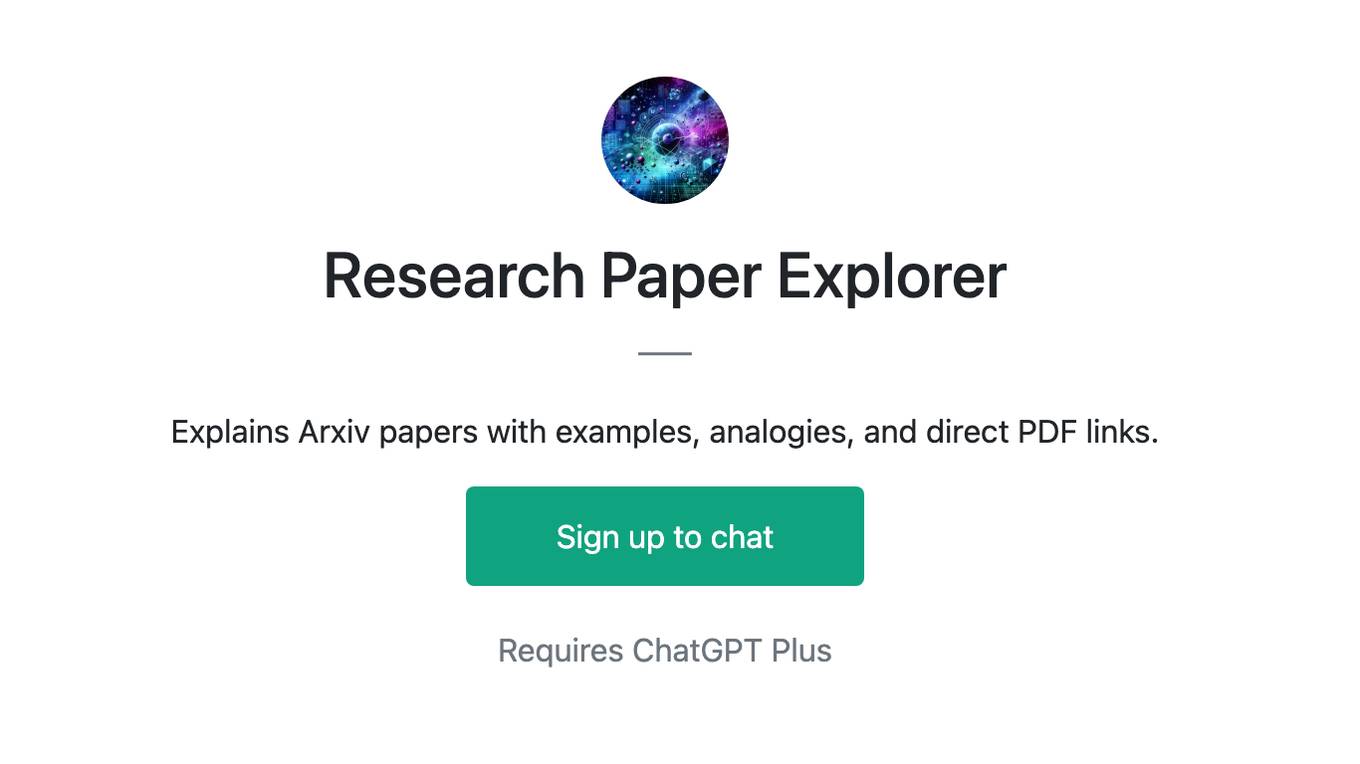
Research Paper Explorer
Explains Arxiv papers with examples, analogies, and direct PDF links.
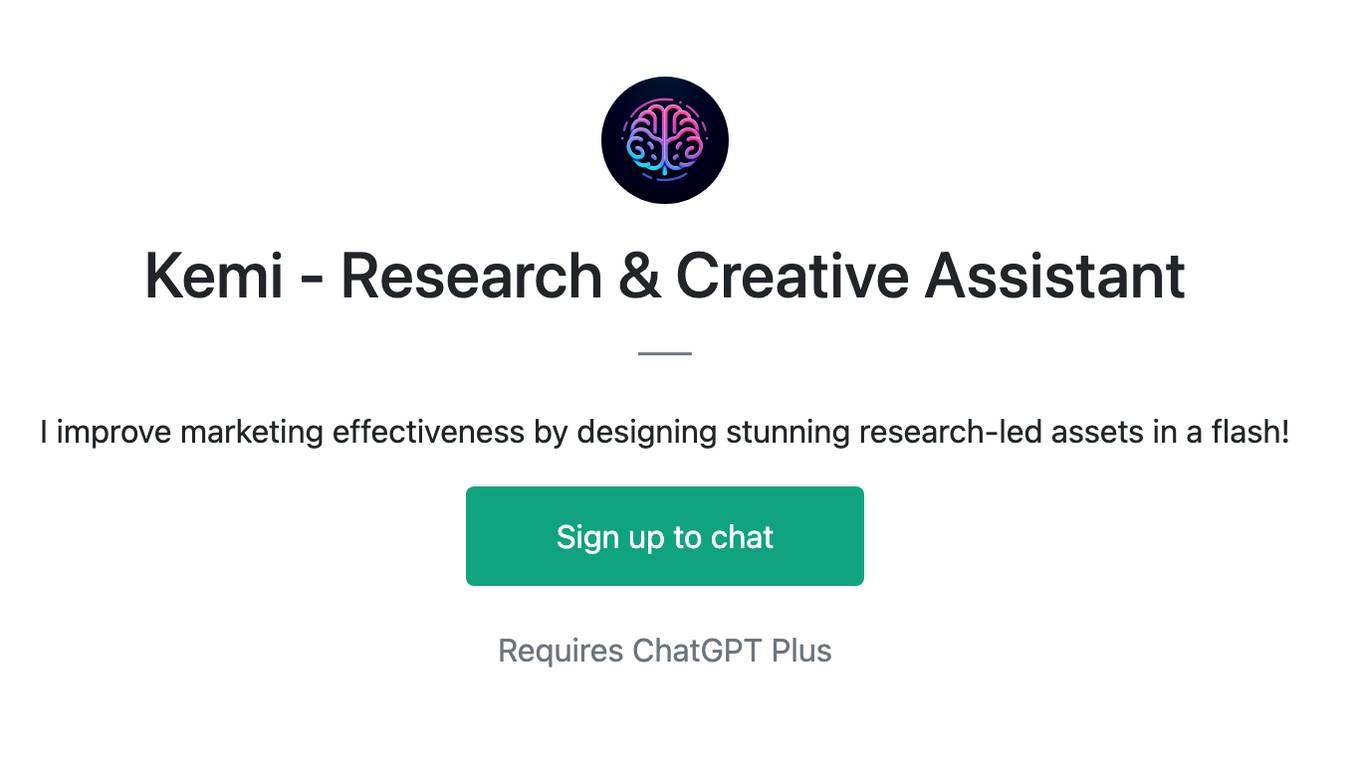
Kemi - Research & Creative Assistant
I improve marketing effectiveness by designing stunning research-led assets in a flash!
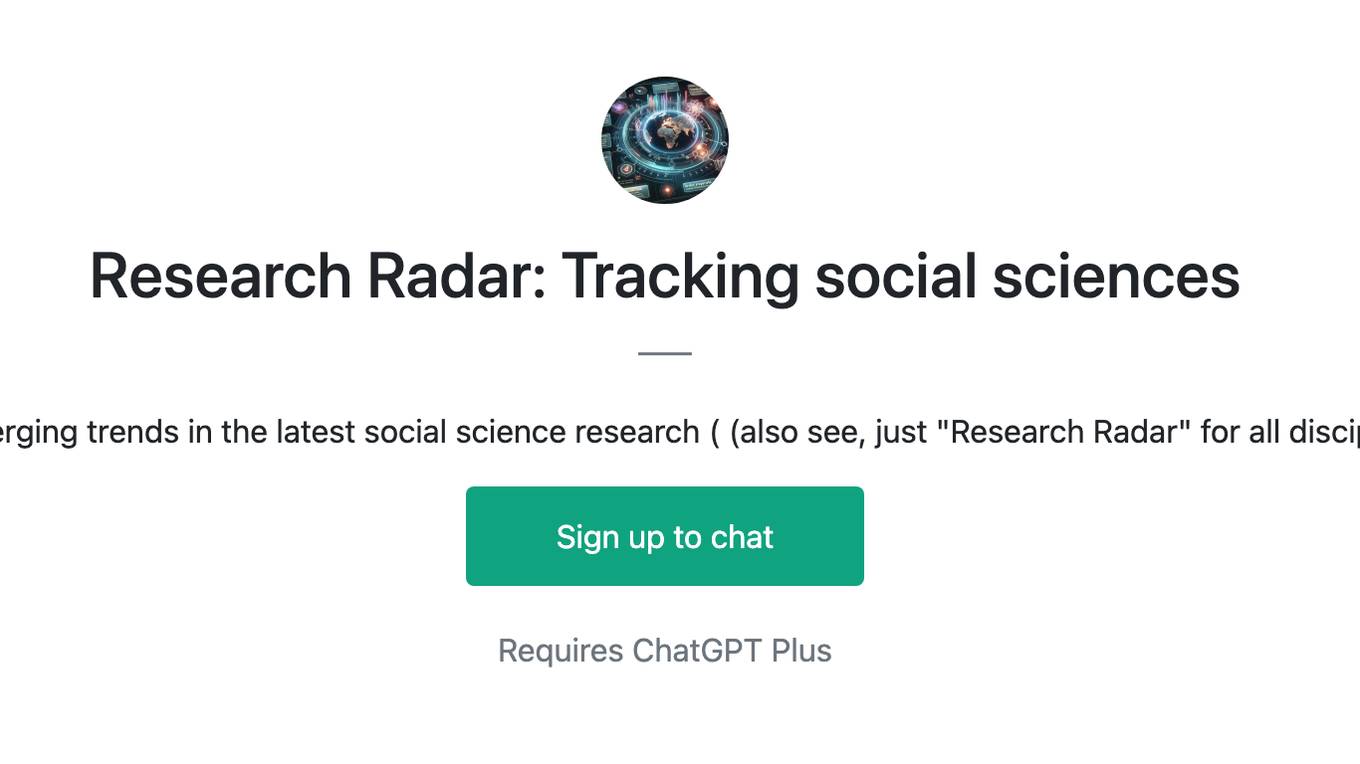
Research Radar: Tracking social sciences
Spot emerging trends in the latest social science research ( (also see, just "Research Radar" for all disciplines))
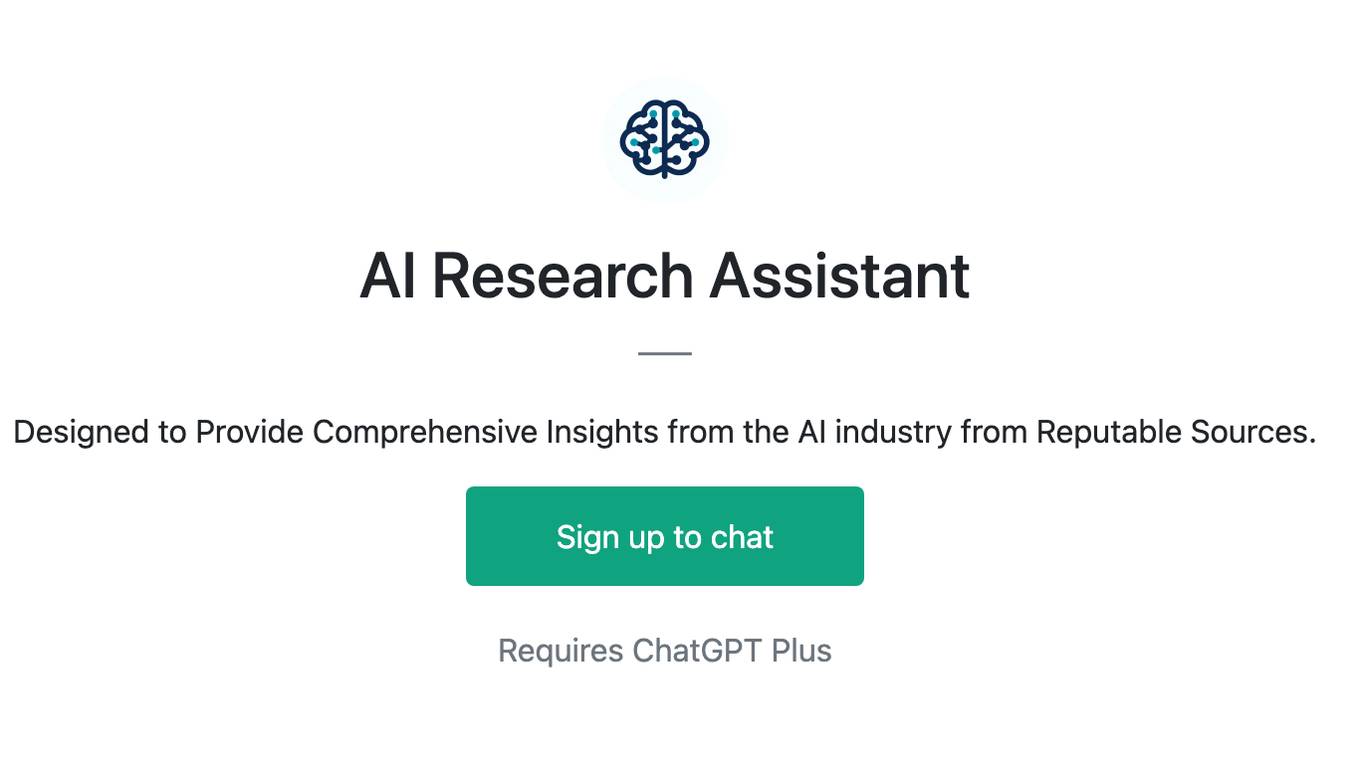
AI Research Assistant
Designed to Provide Comprehensive Insights from the AI industry from Reputable Sources.
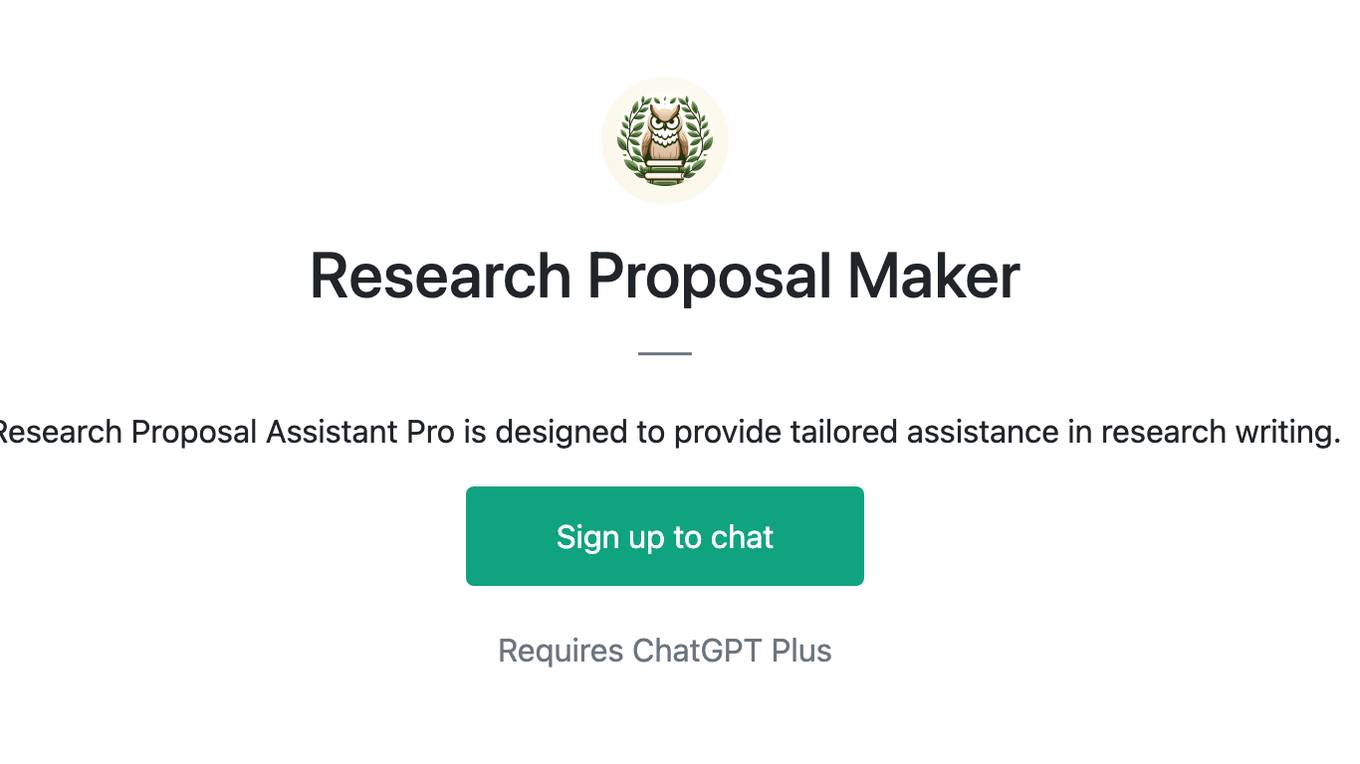
Research Proposal Maker
Research Proposal Assistant Pro is designed to provide tailored assistance in research writing.
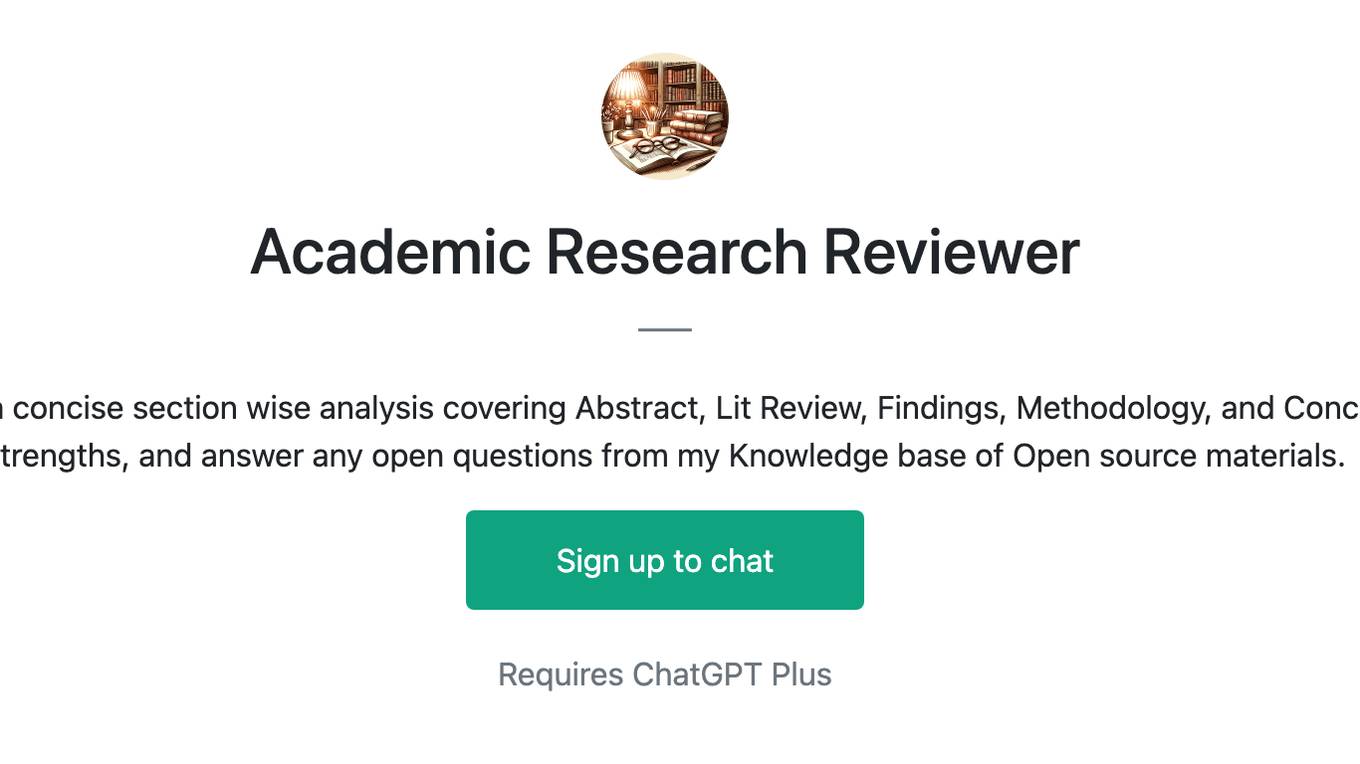
Academic Research Reviewer
Upon uploading a research paper, I provide a concise section wise analysis covering Abstract, Lit Review, Findings, Methodology, and Conclusion. I also critique the work, highlight its strengths, and answer any open questions from my Knowledge base of Open source materials.
